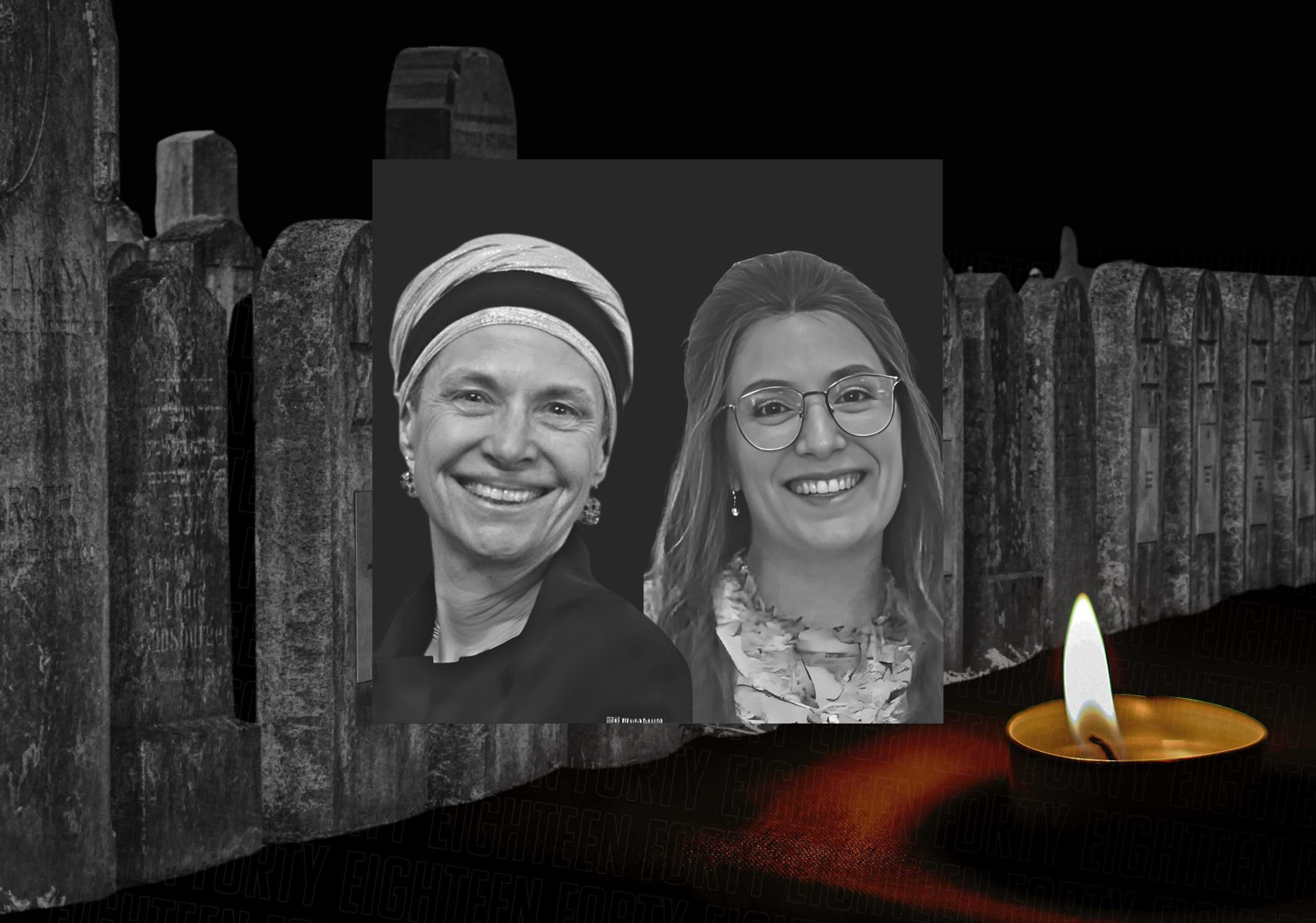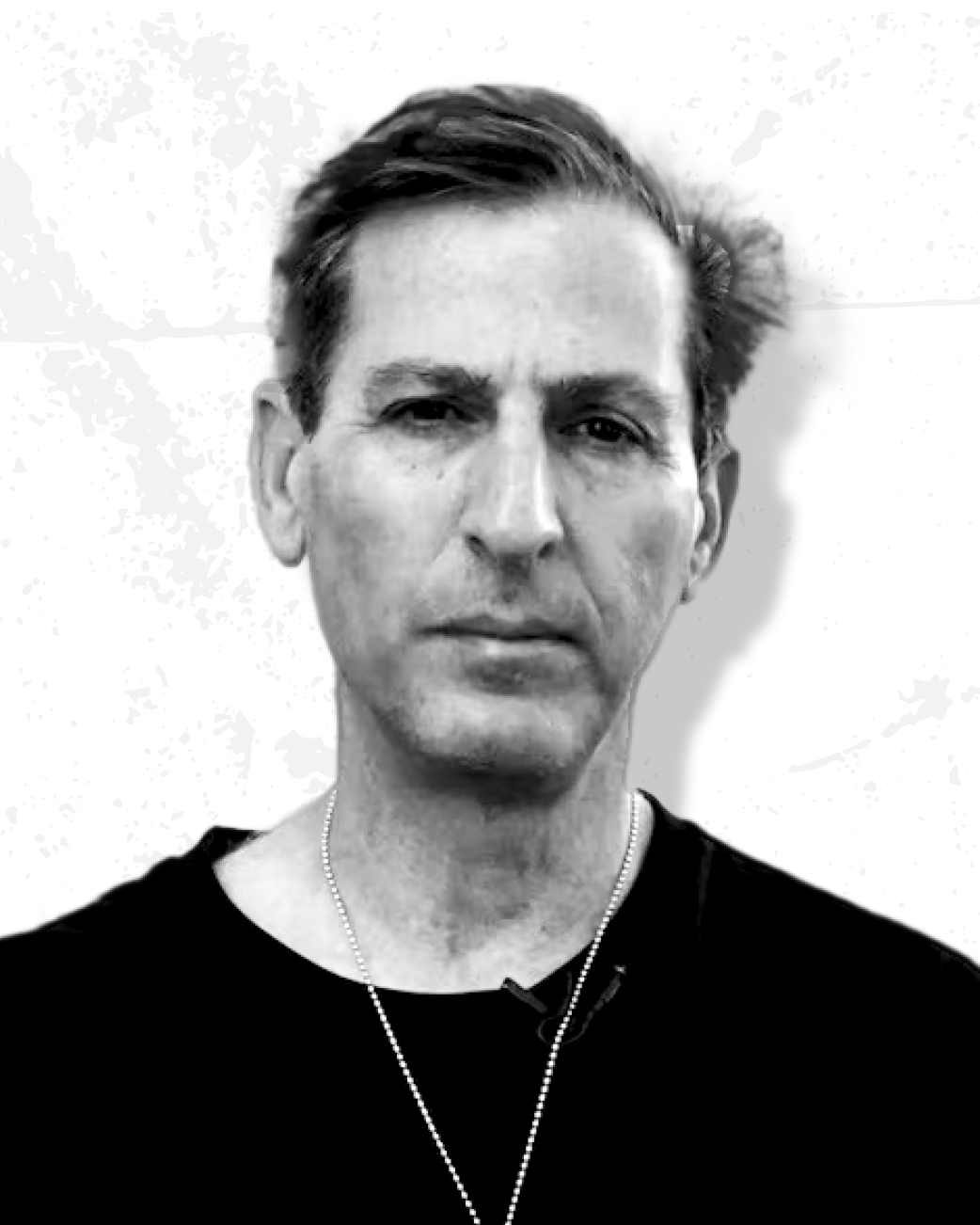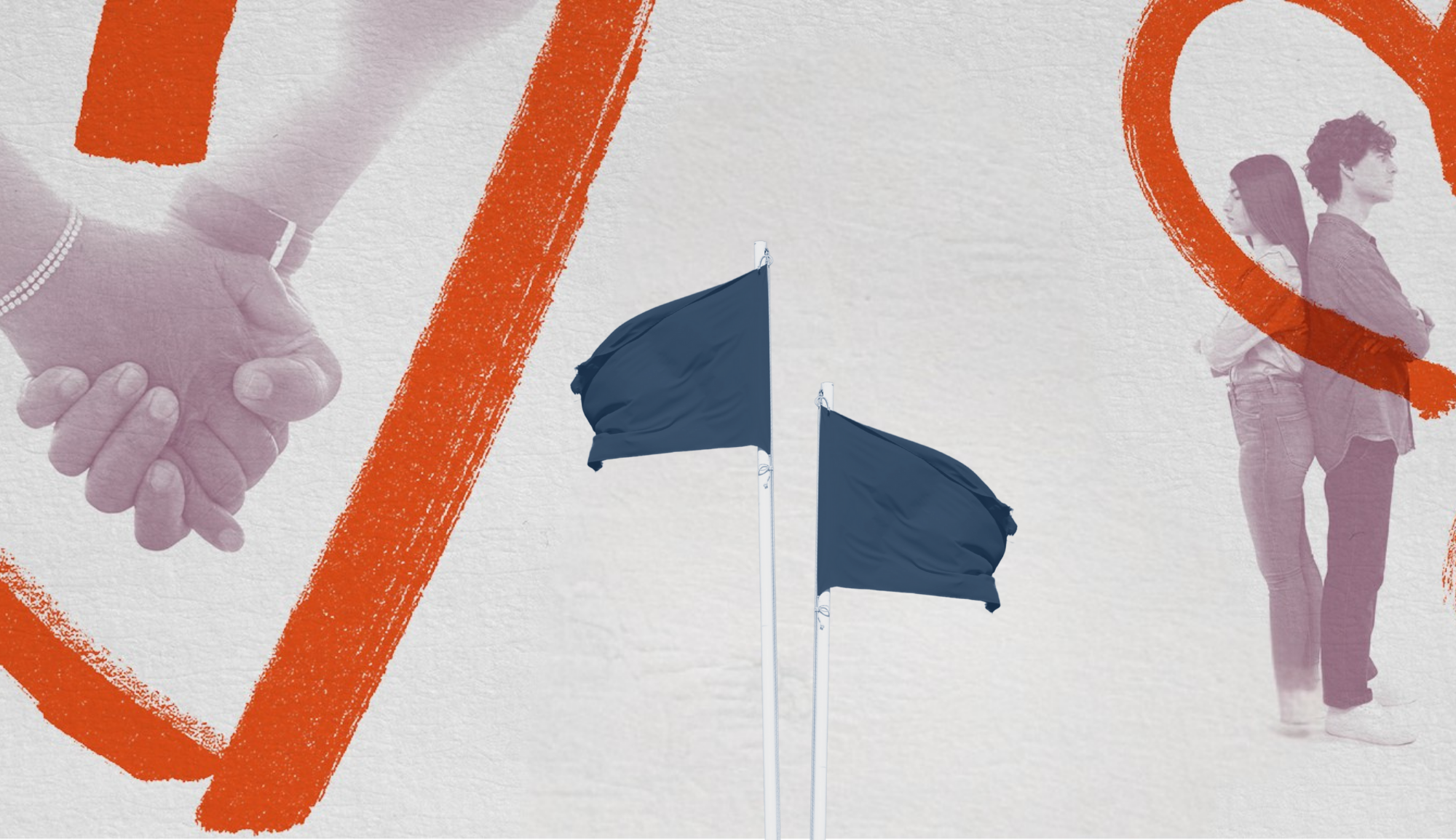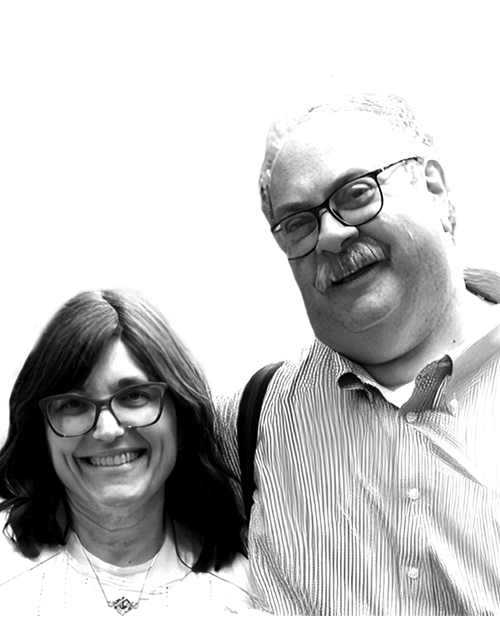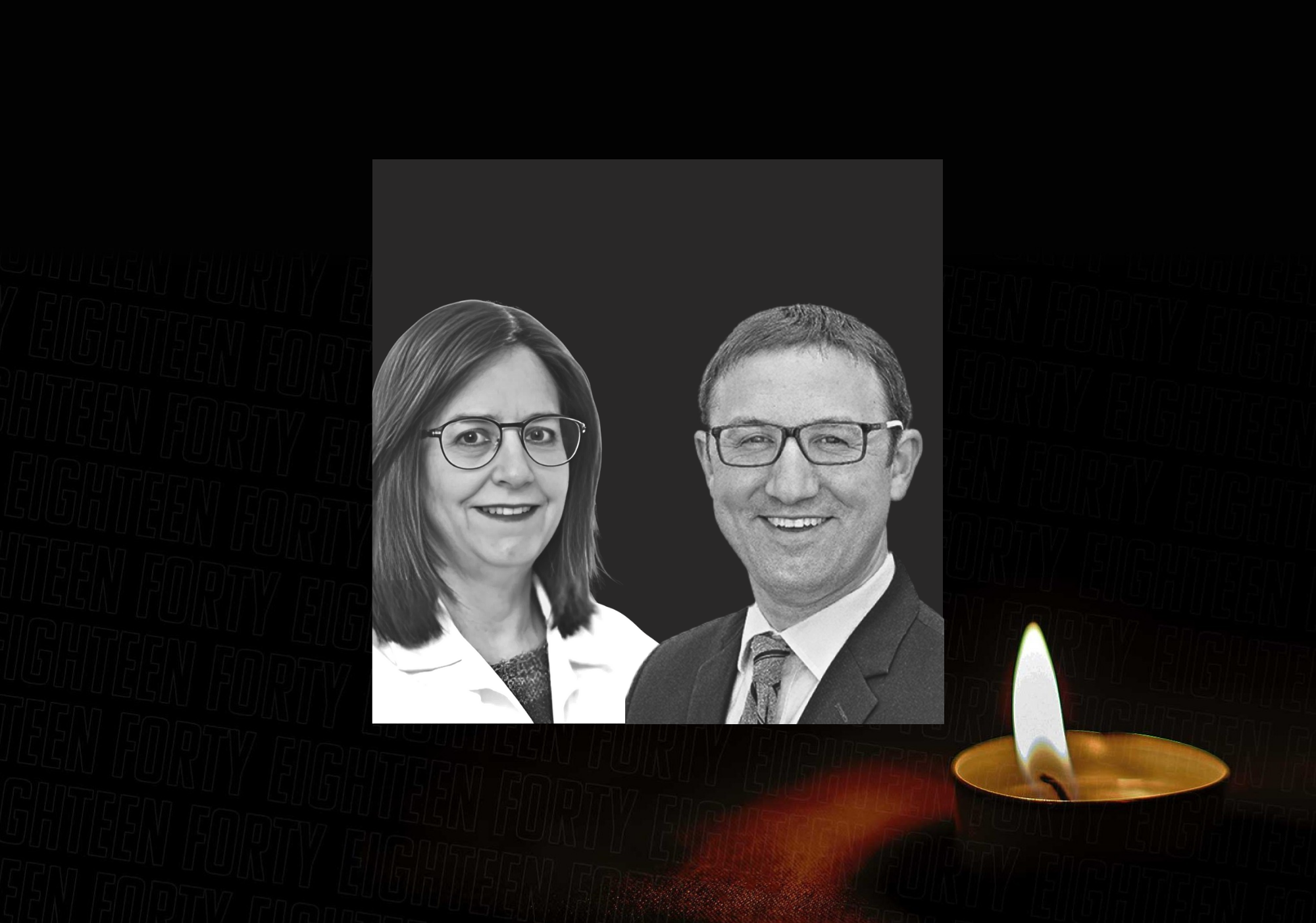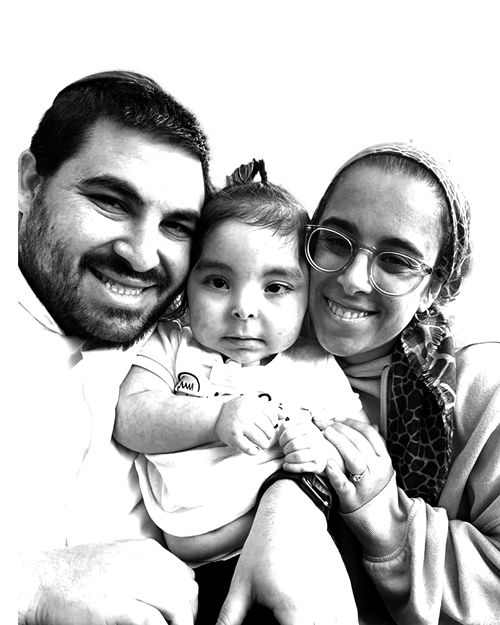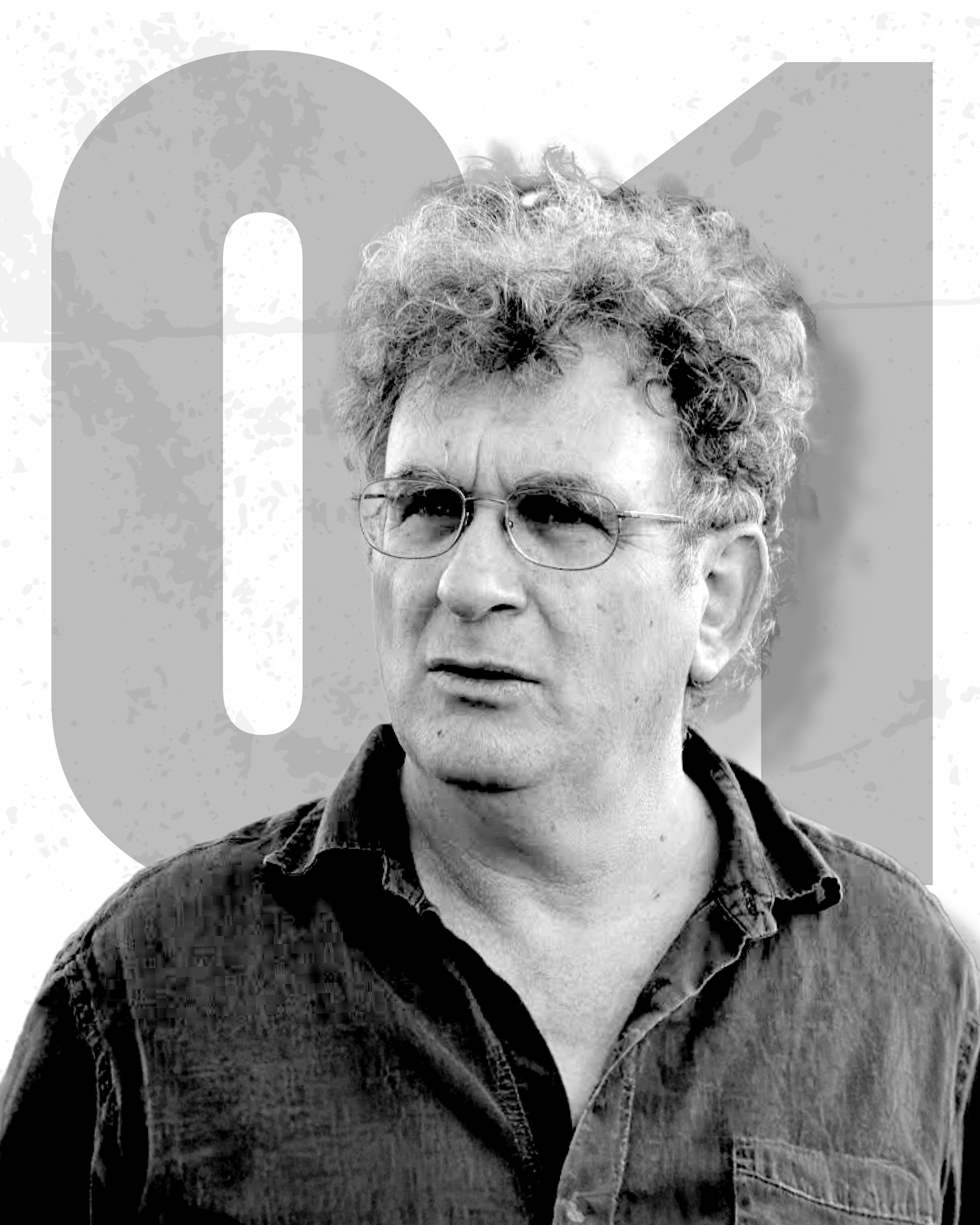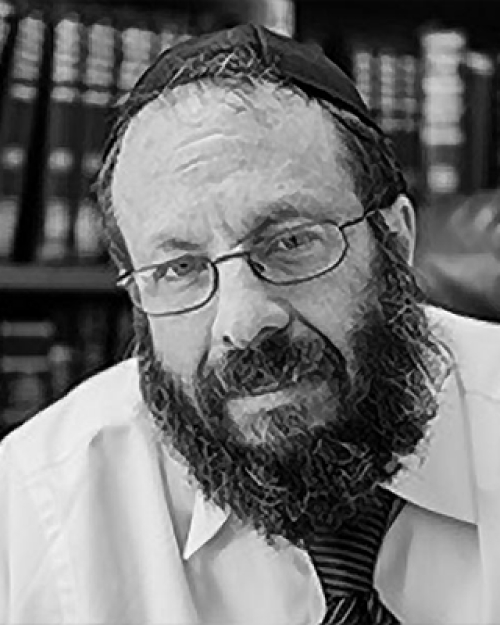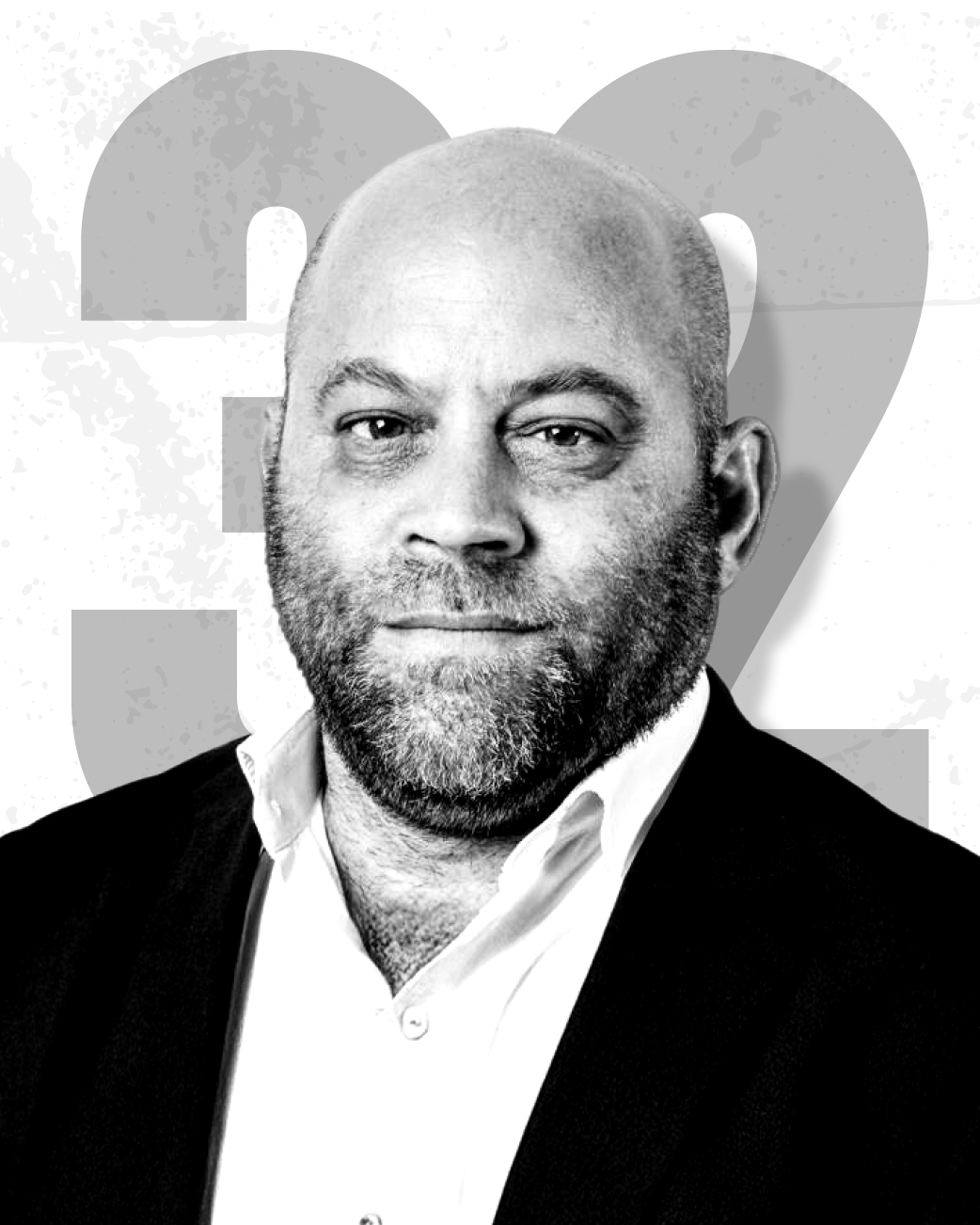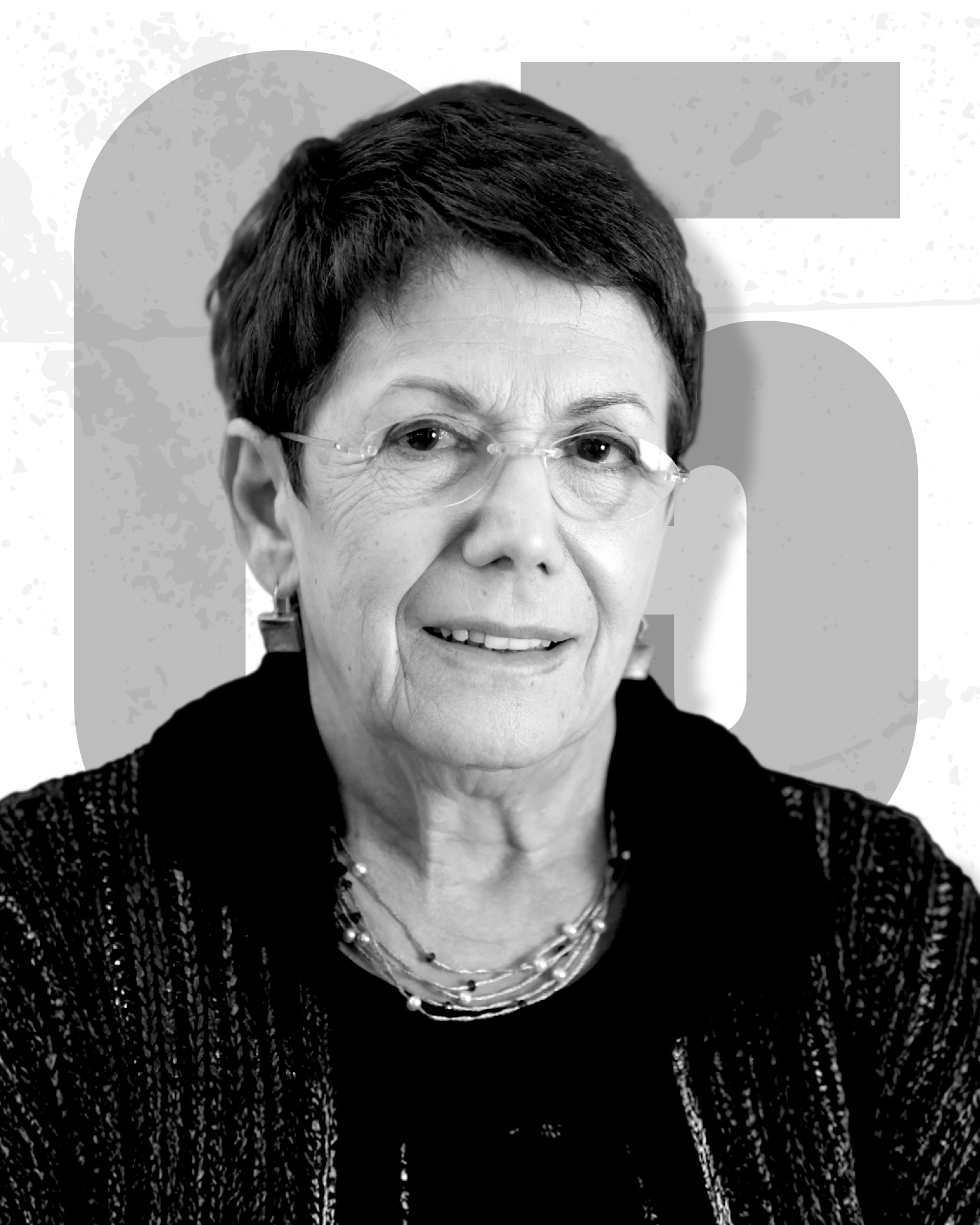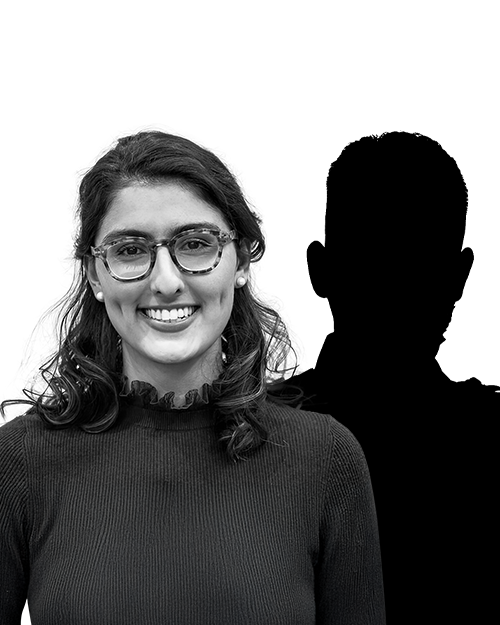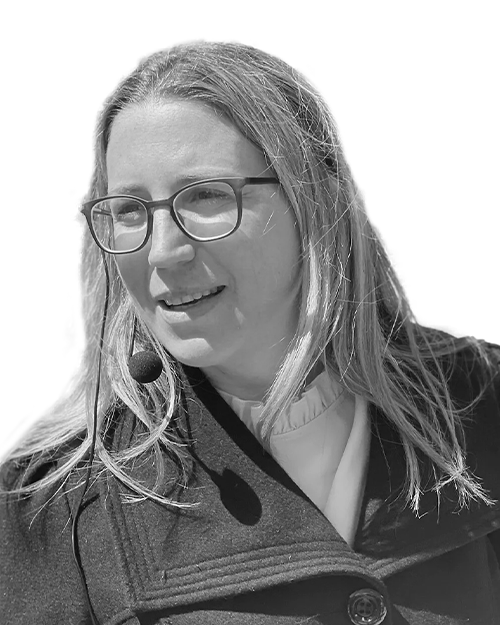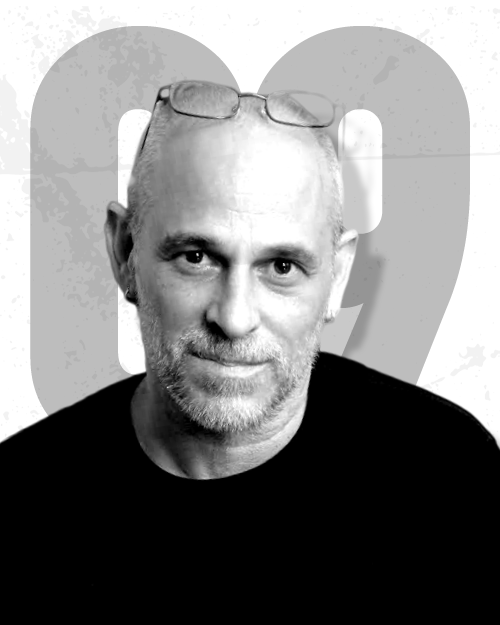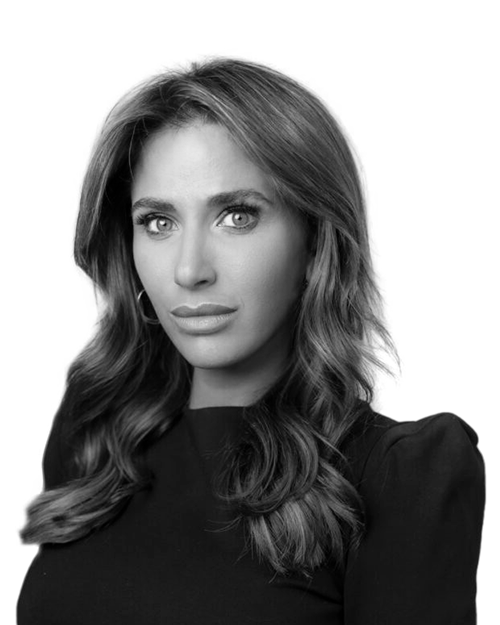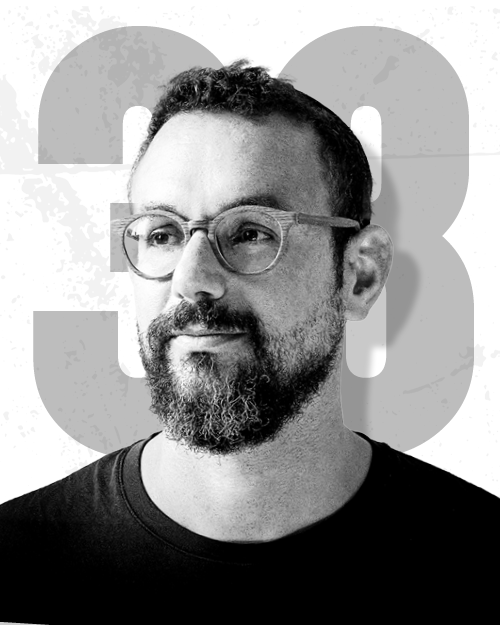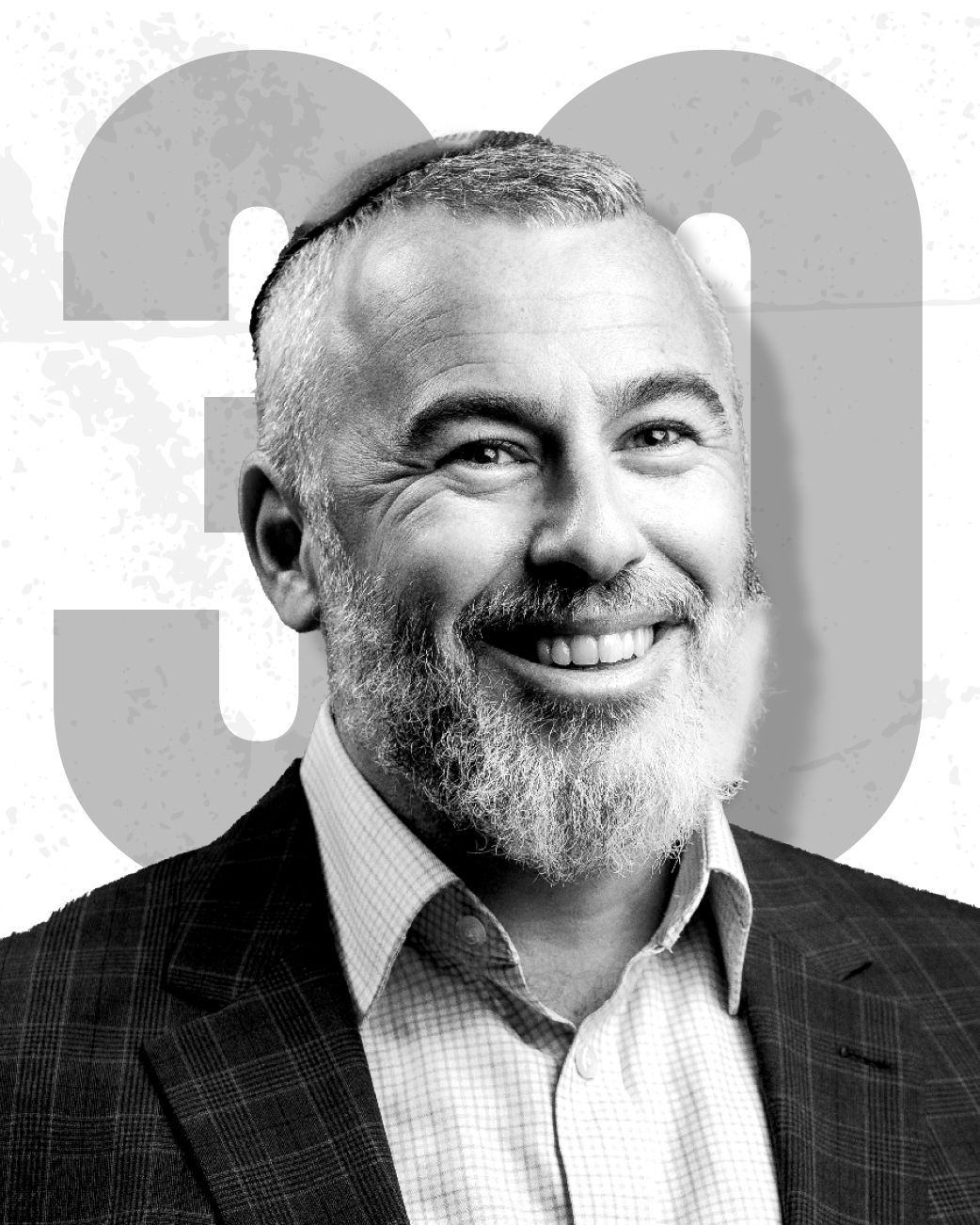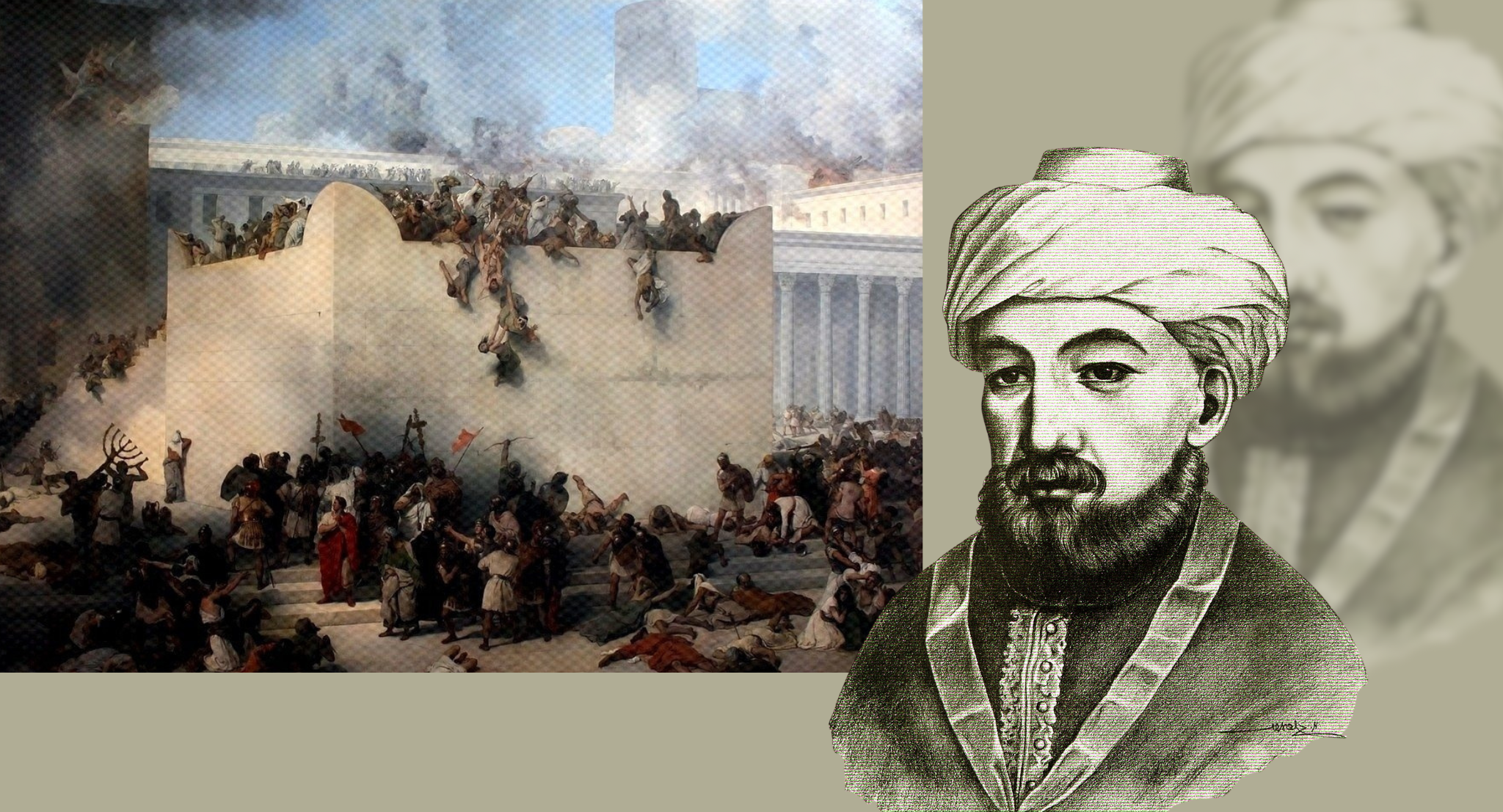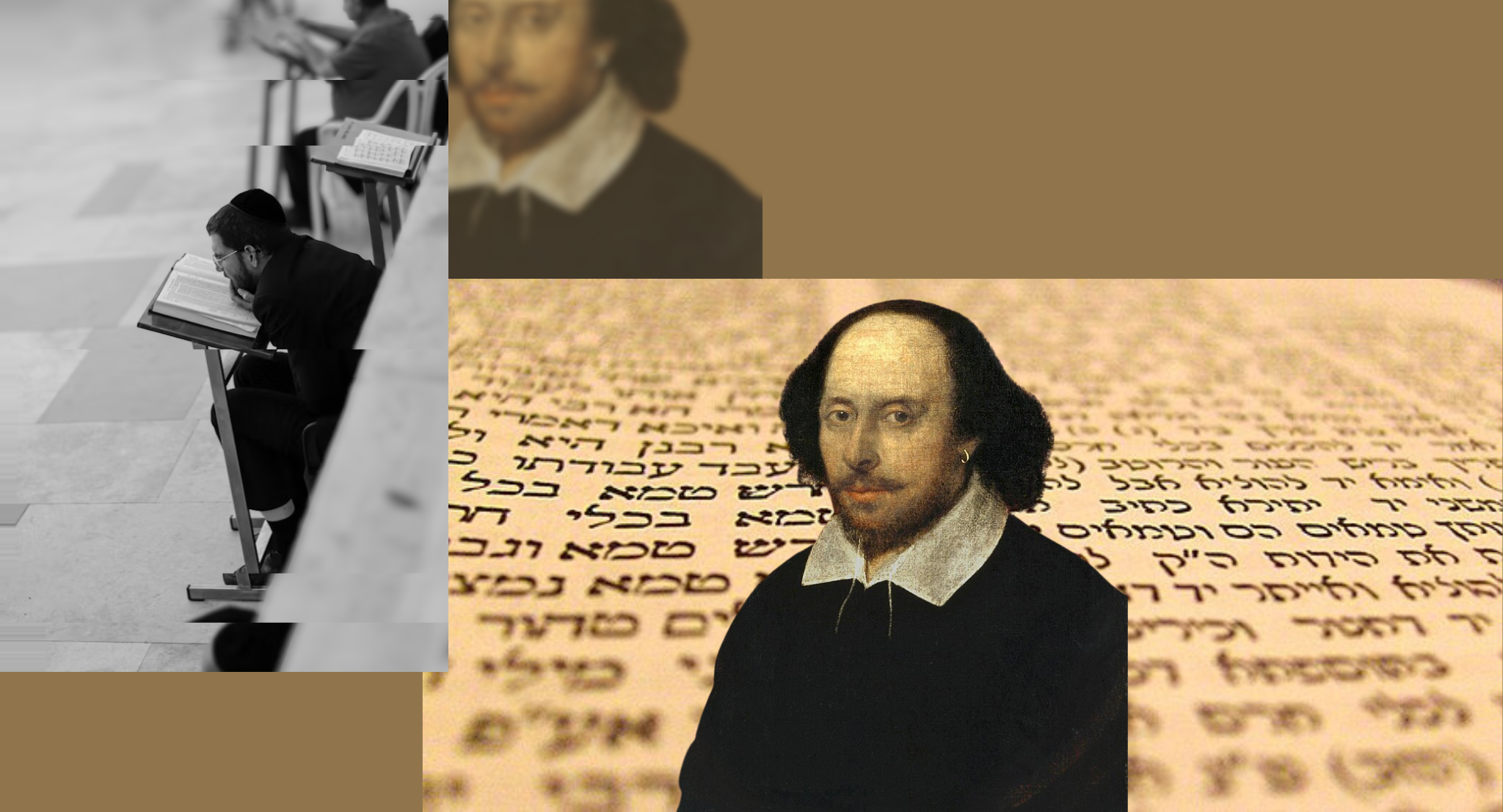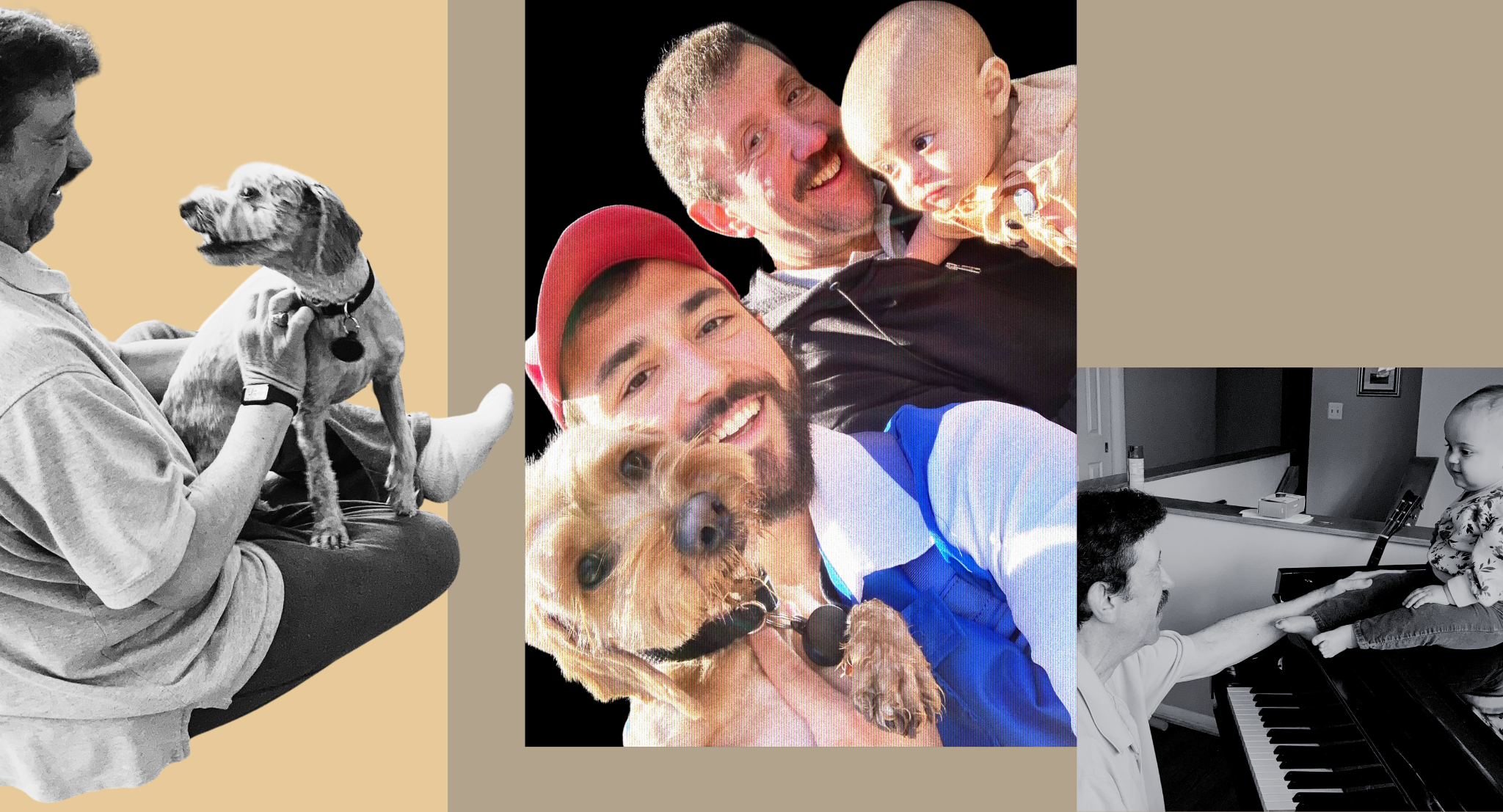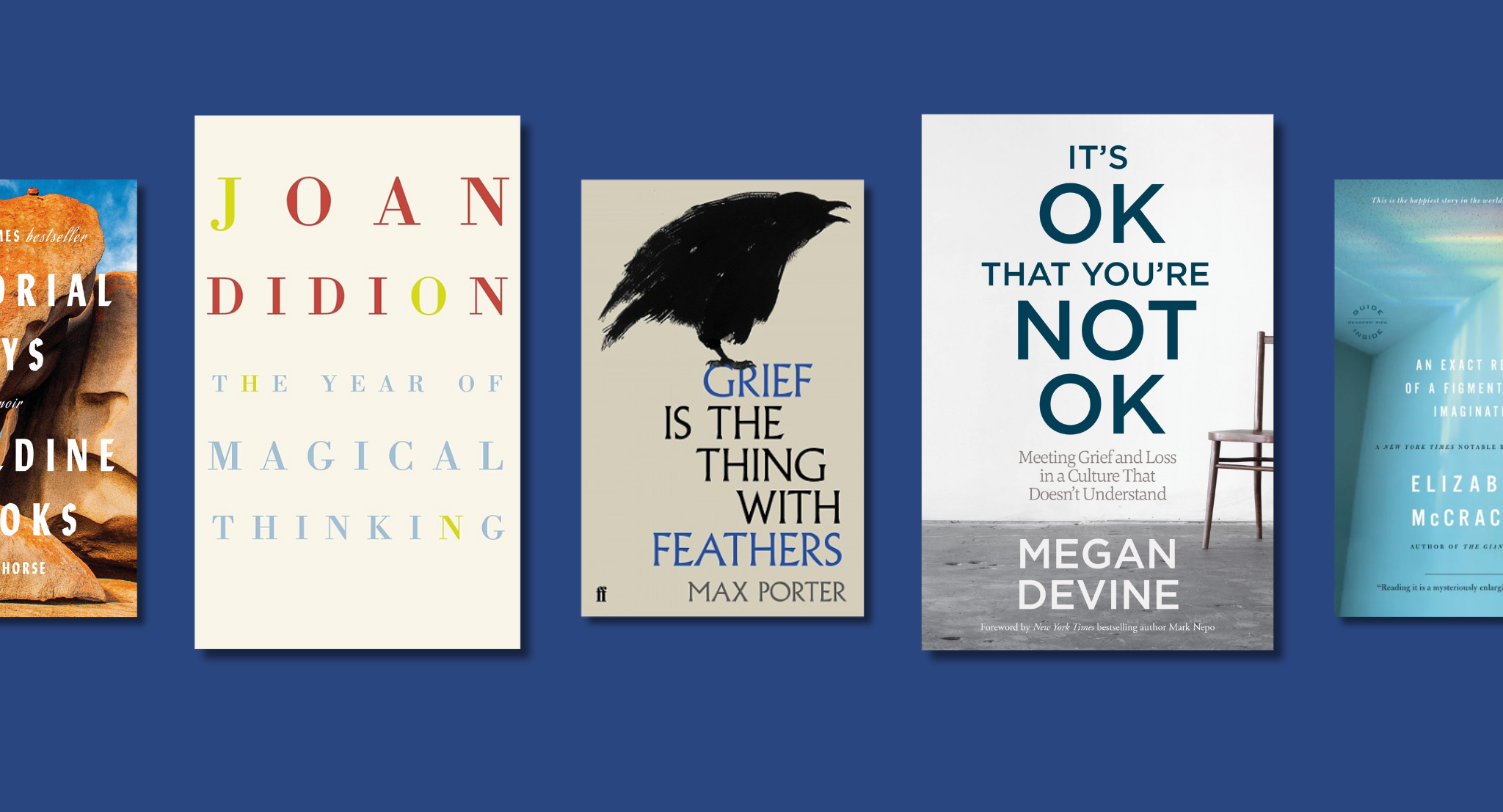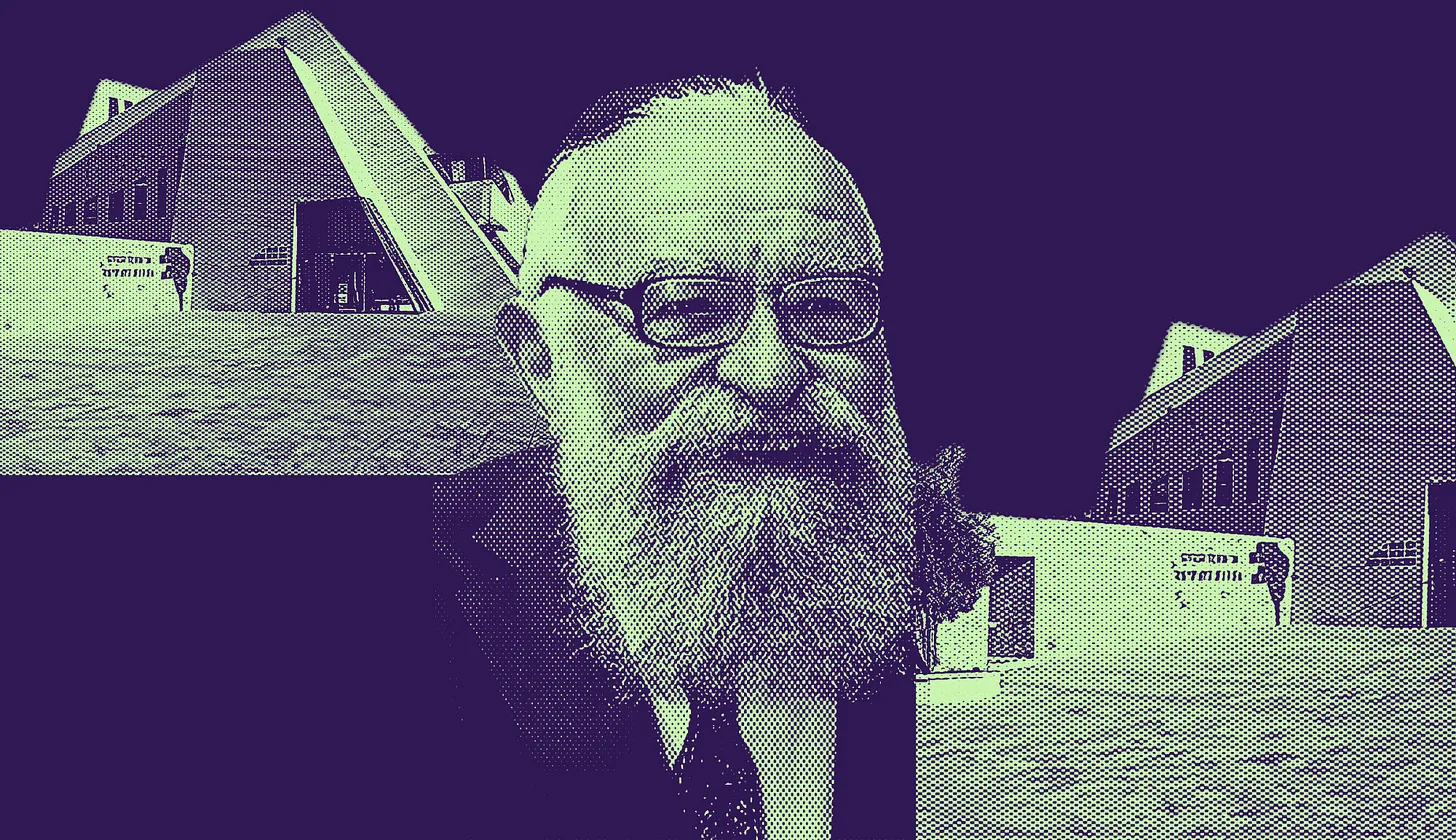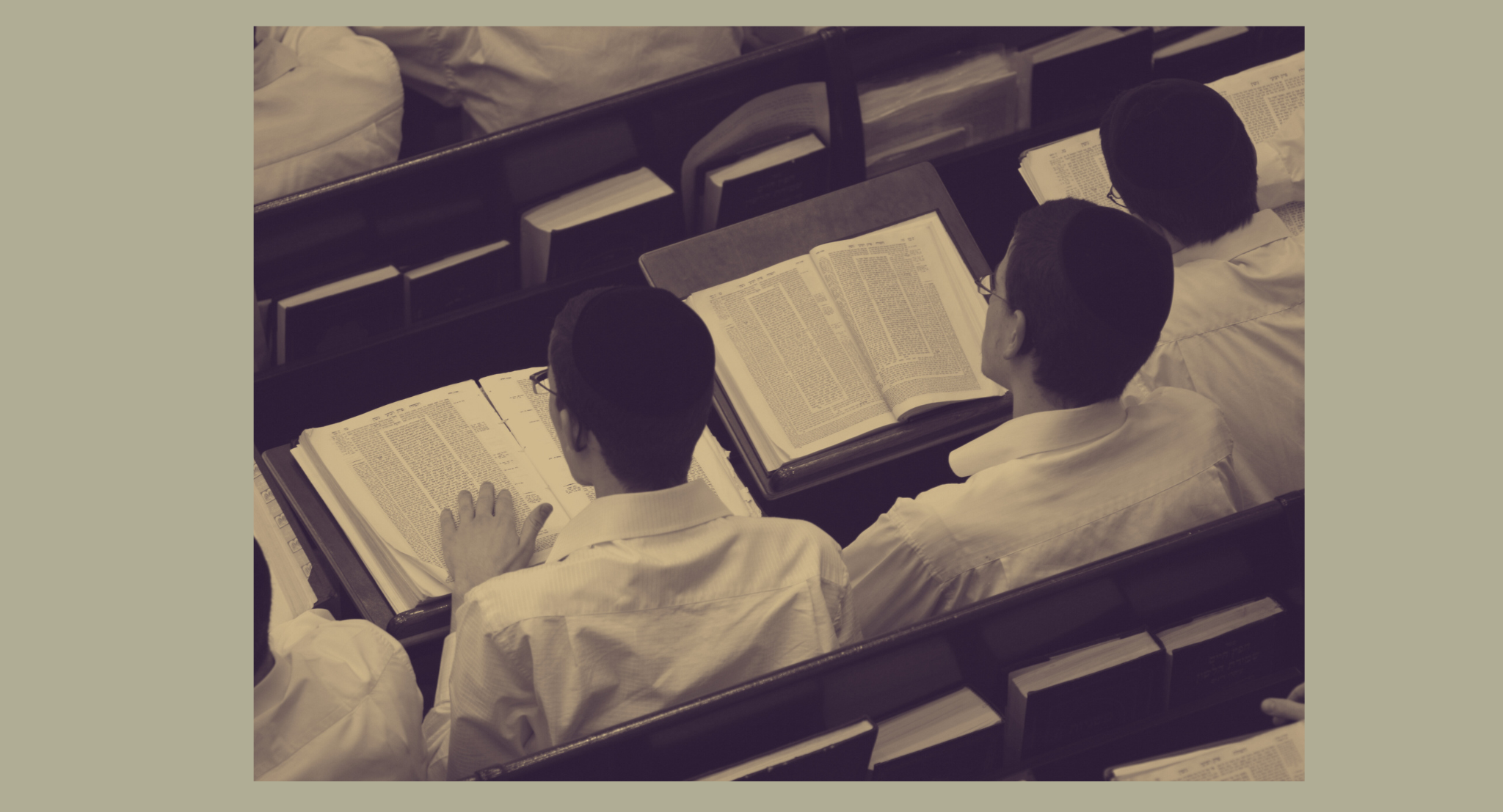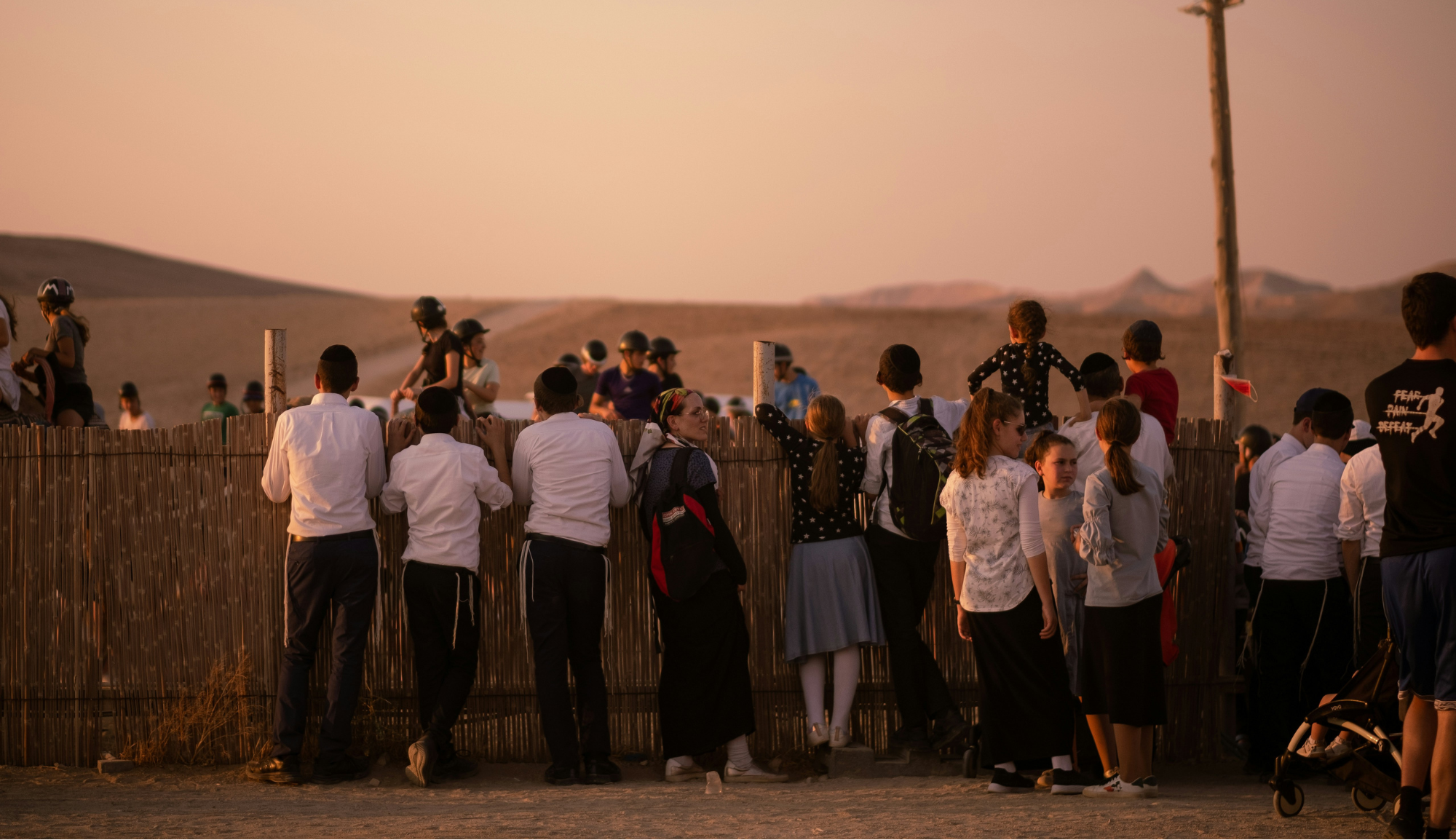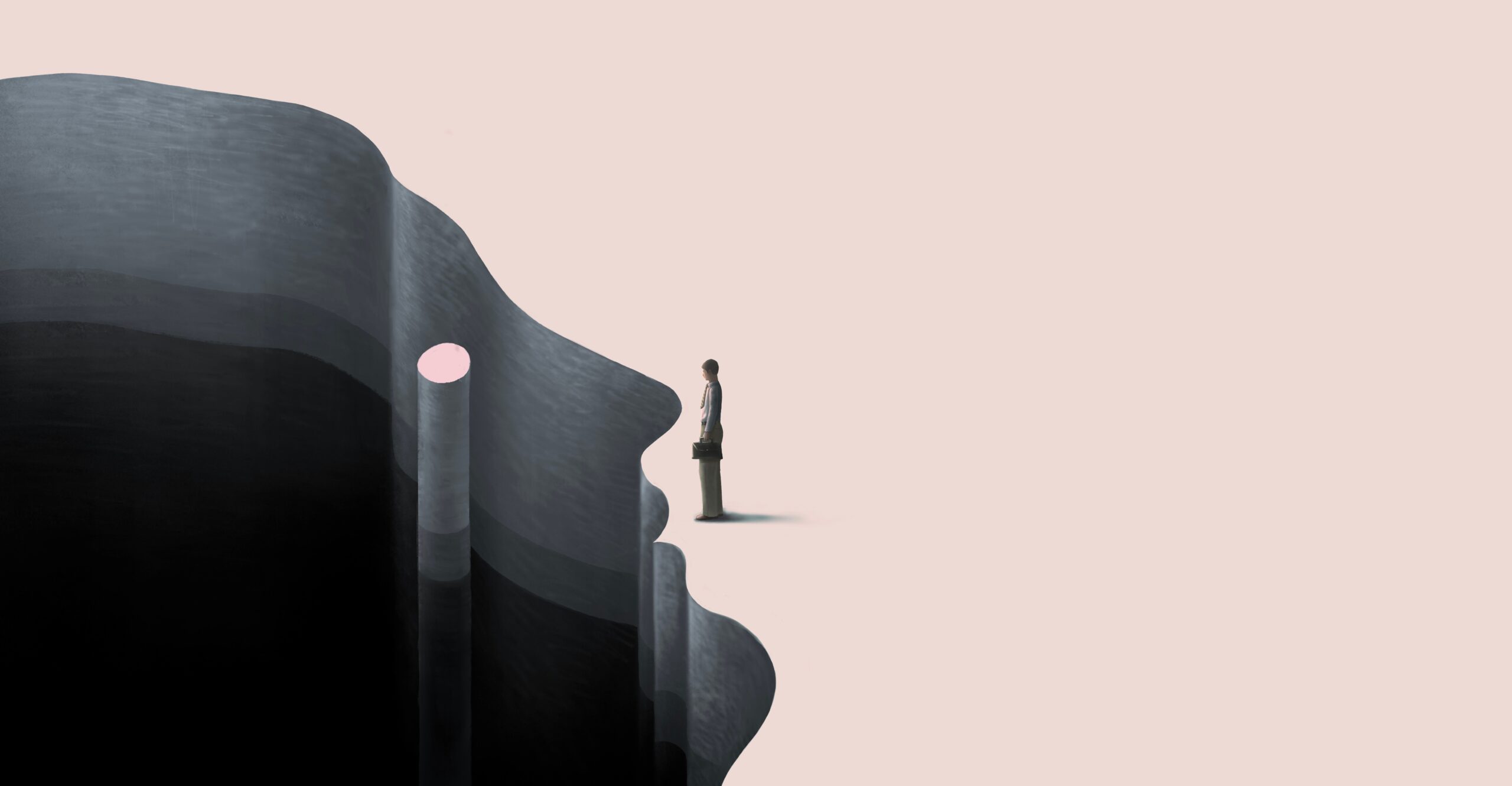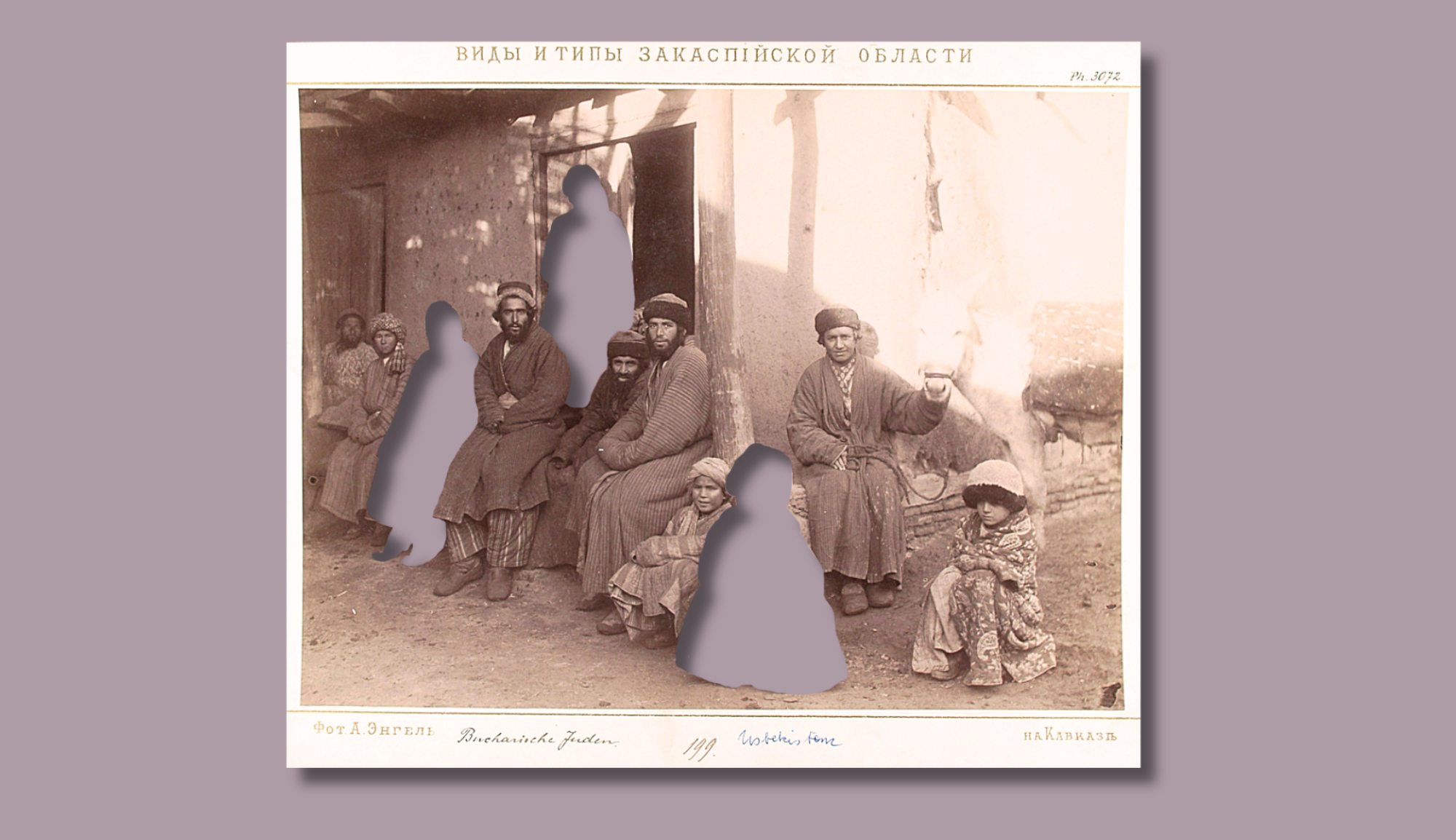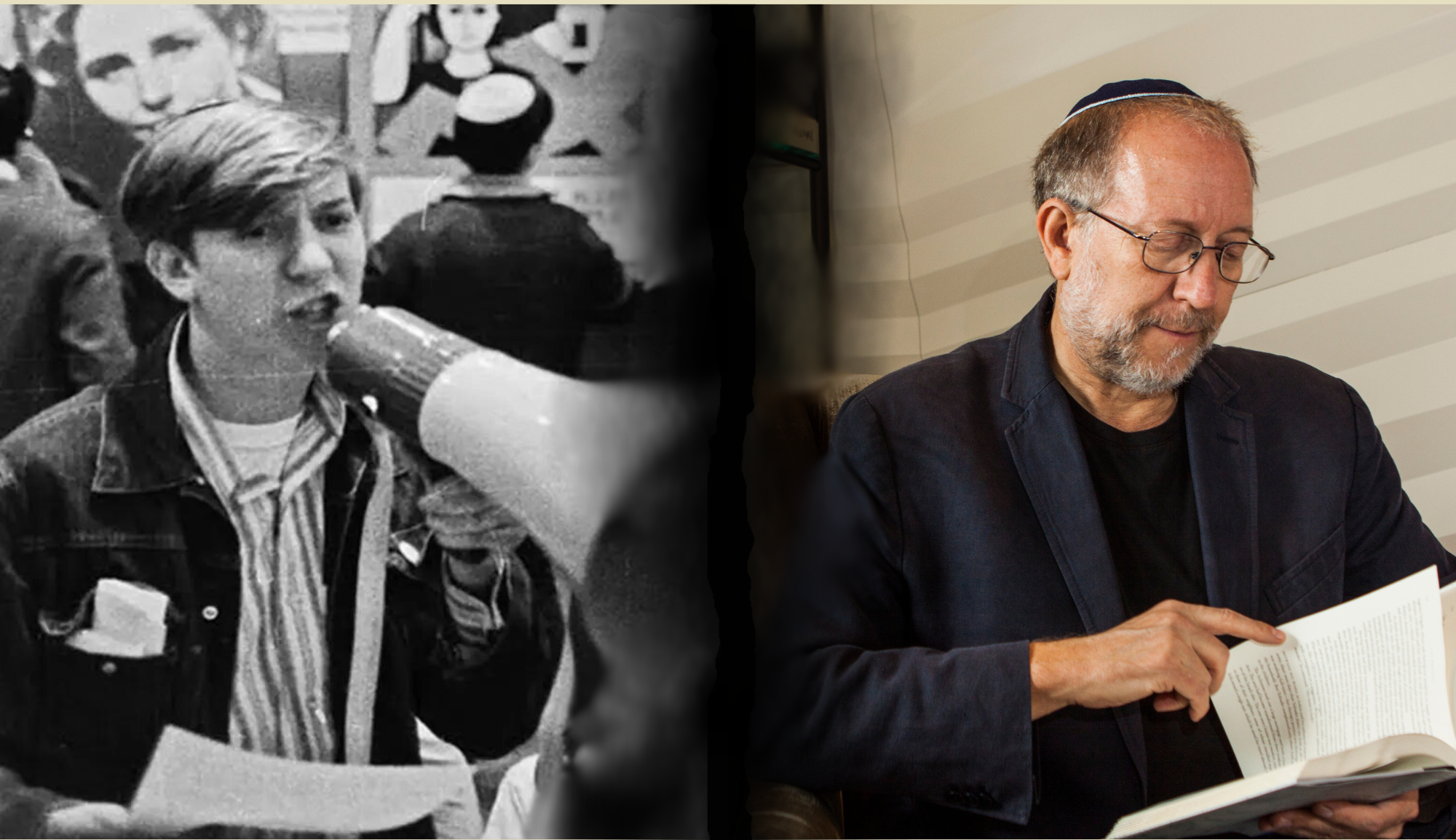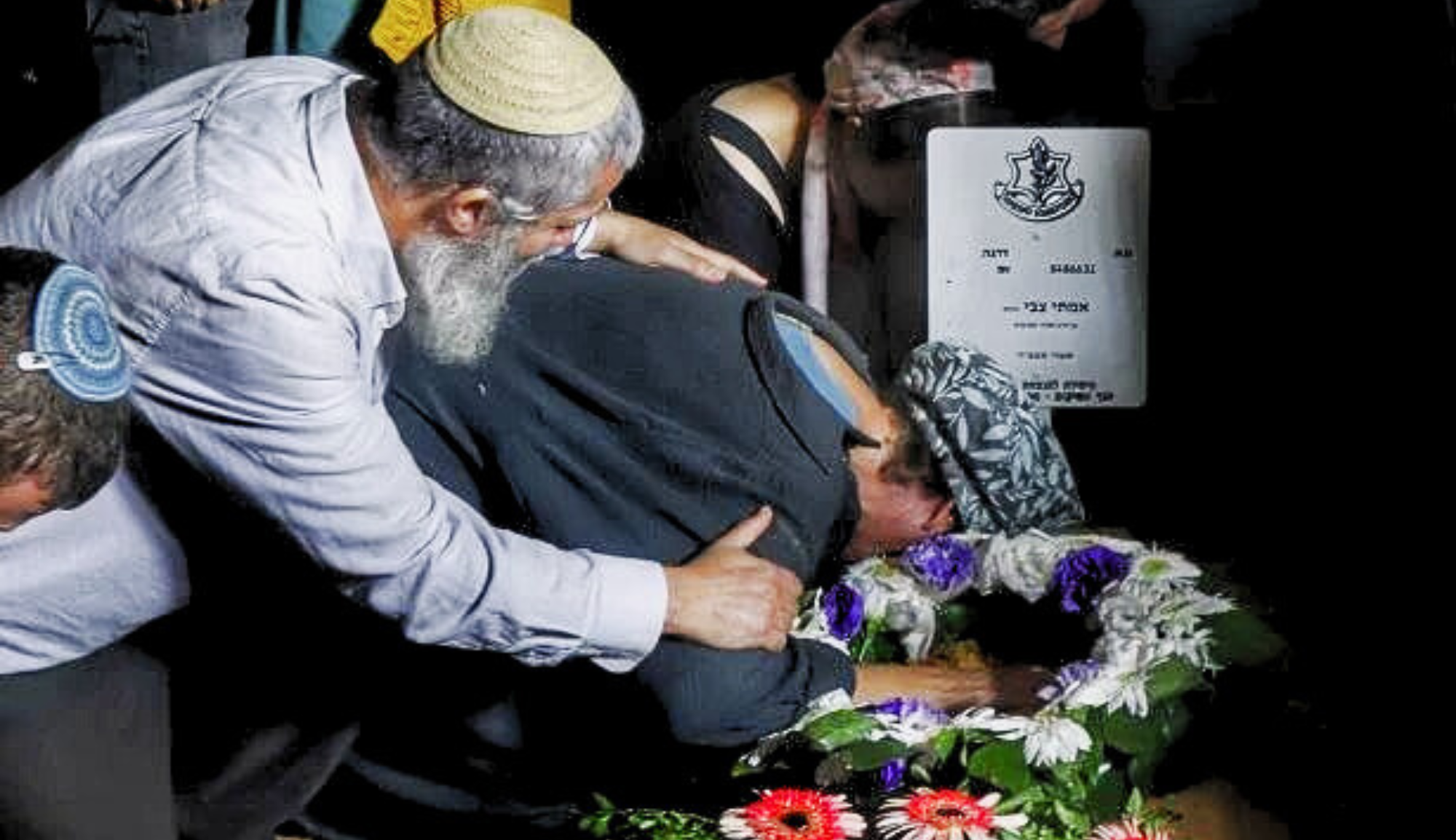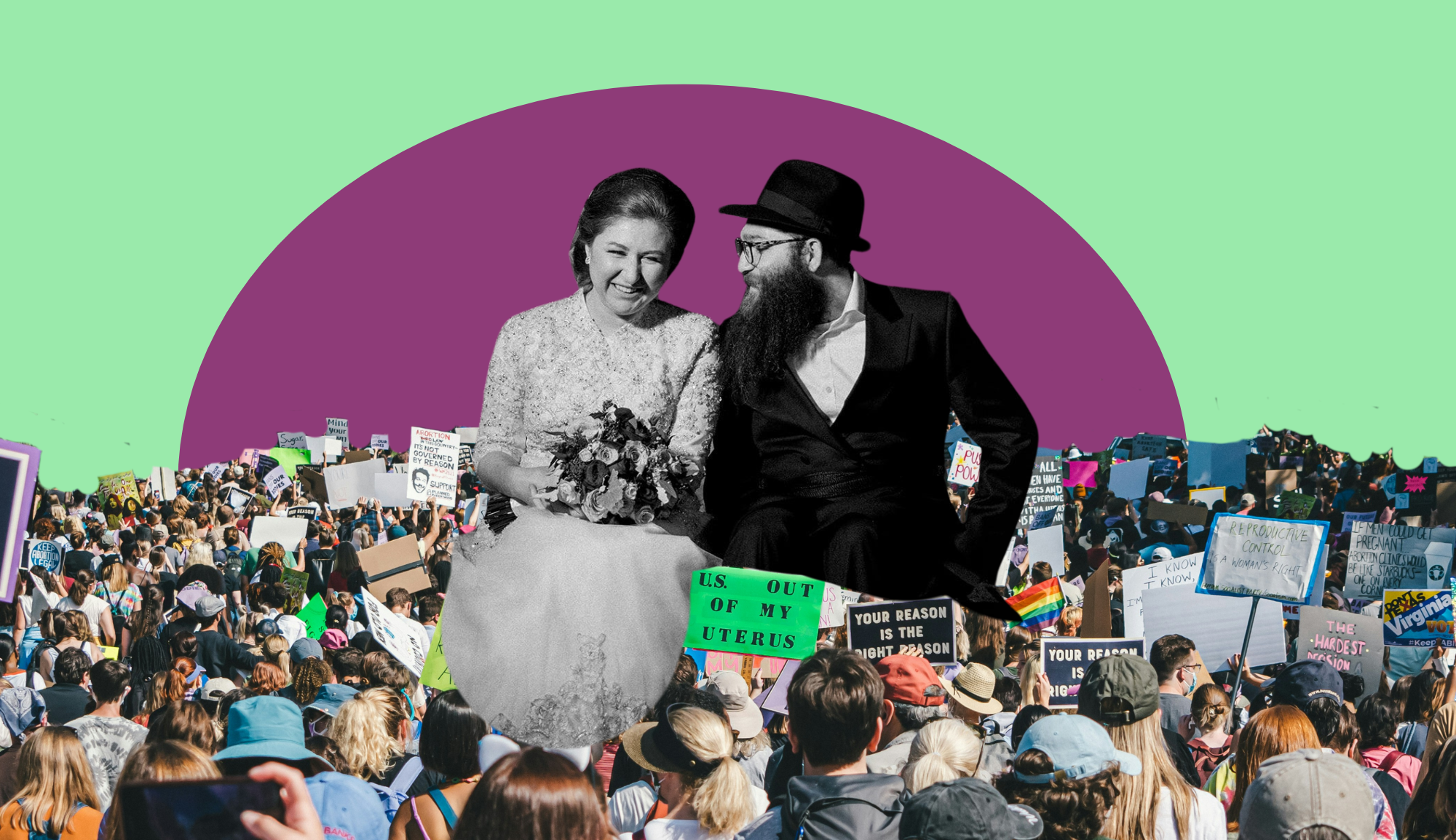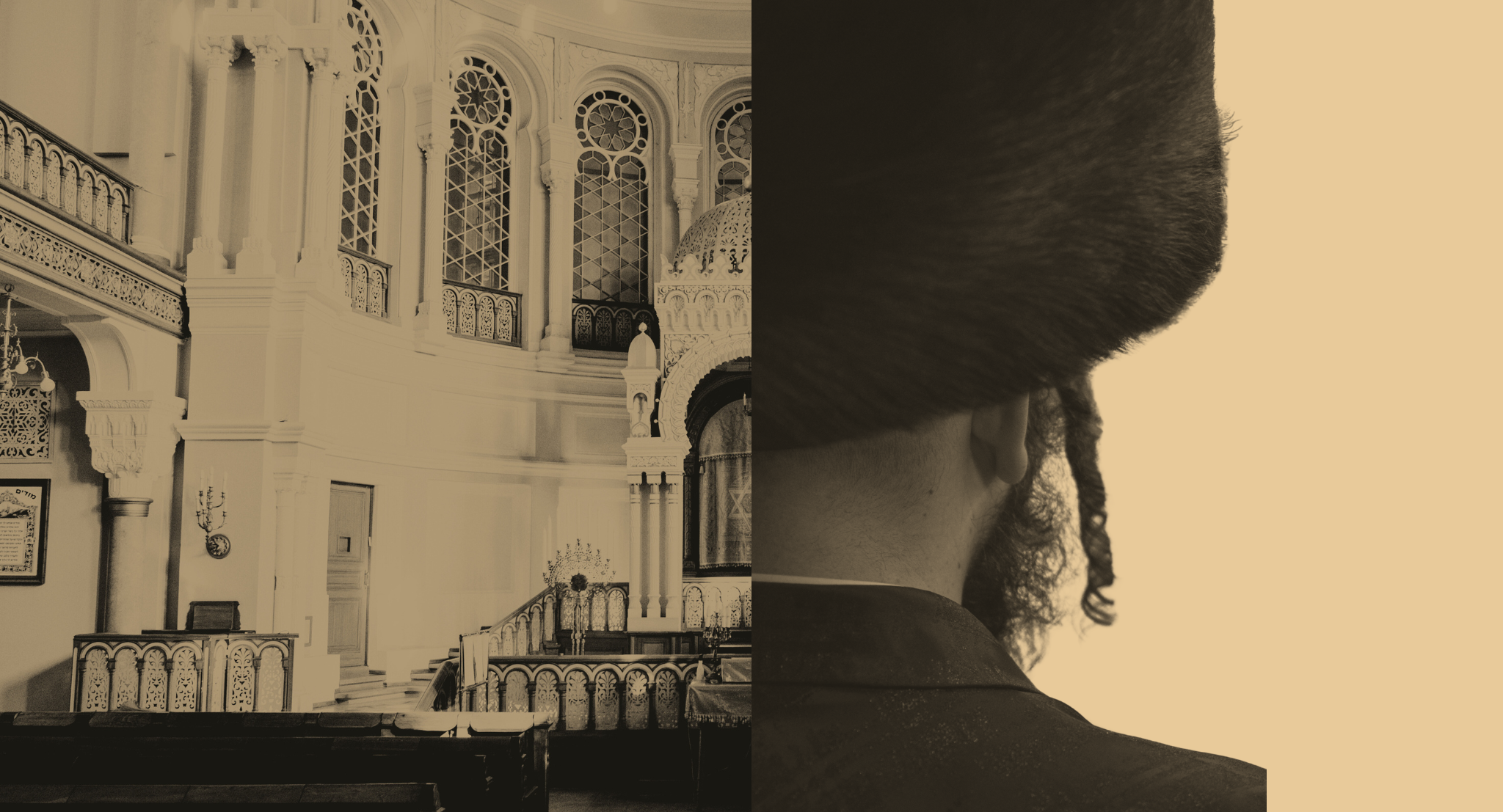Sivan Rahav-Meir: ‘When it comes to terrorism, you can’t compromise
Religious journalist Sivan Rahav-Meir answers 18 questions on Israel, including Israelis’ search for meaning, peace prospects, the war, and so much more.
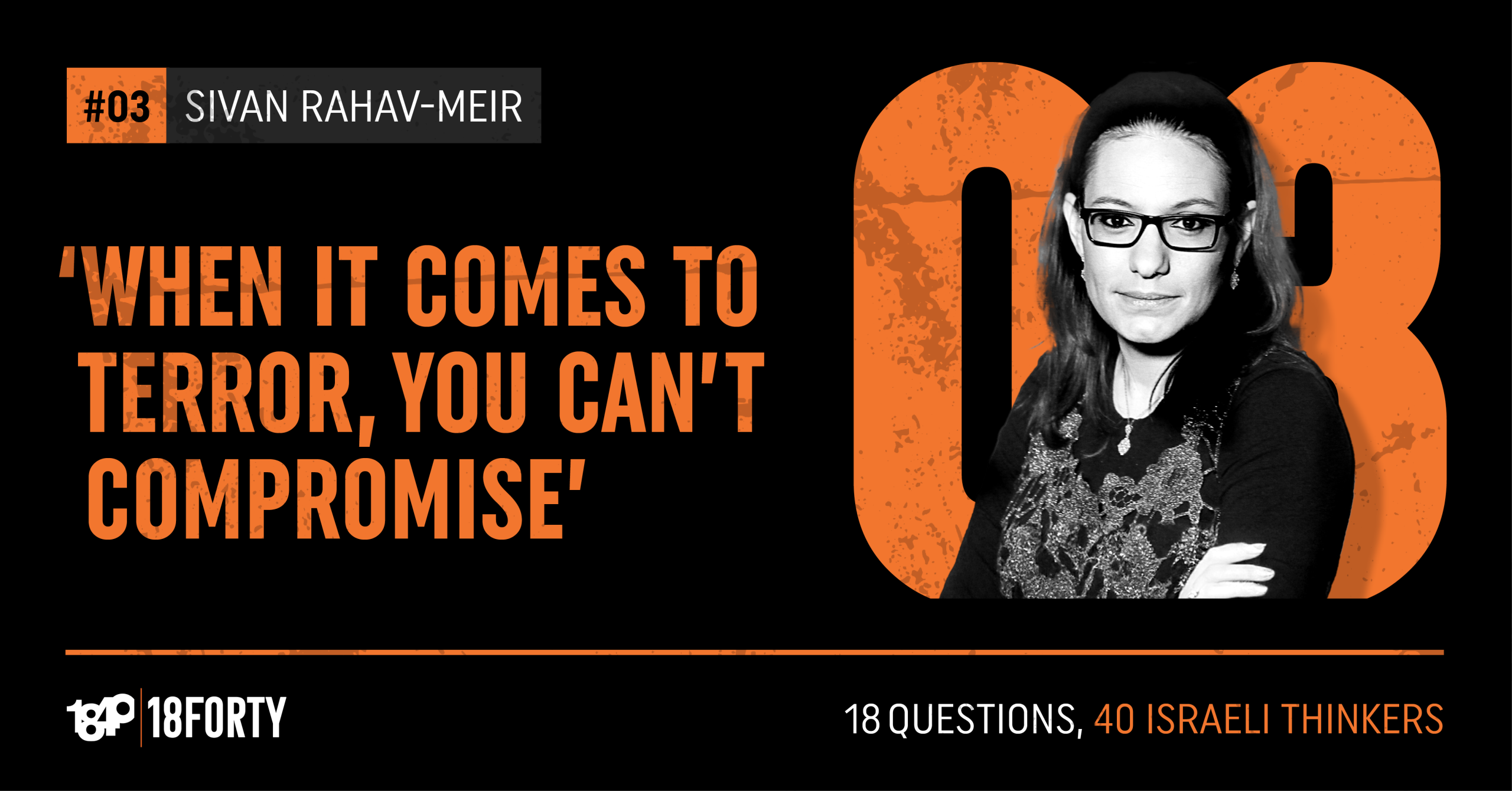
Summary
Israel’s fight against Hamas, Sivan Rahav-Meir says, is preventing another Oct. 7—and another Sept. 11.
The Israeli religious journalist — voted Israel’s most popular media personality — grew up secular and part of the Israel left’s “Peace Now” movement, but she’s not quite there anymore.
Now a journalist for Israel TV news, a columnist for Yediot Aharonot newspaper, and host of a weekly radio show on the Army Radio, Sivan is a leading figure in Israeli society more broadly — and the religious society specifically.
A 2017 Forward profile described her as “a female sort of Hasidic grand rabbi” because of the thousands flocking to her Torah lectures. She sends a Jewish insight each day to tens of thousands of WhatsApp subscribers The Daily Thought.
Now, she sits down with us to answer 18 questions on Israel, including Israel’s battle against terrorism, living in Messianic times, that time she interviewed Yitzchak Rabin, and so much more.
This interview was held on July 4.
Here are our 18 questions:
- As an Israeli, and as a Jew, how are you feeling at this moment in Israeli history?
- What has been Israel’s greatest success and greatest mistake in its war against Hamas?
- How have your religious views changed since Oct. 7?
- What do you look for in deciding which Knesset party to vote for?
- Which is more important for Israel: Judaism or democracy?
- Should Israel treat its Jewish and non-Jewish citizens the same?
- Now that Israel already exists, what is the purpose of Zionism?
- Is opposing Zionism inherently antisemitic?
- Should Israel be a religious state?
- If you were making the case for Israel, where would you begin?
- Should all Israelis serve in the army?
- Can questioning the actions of Israel’s government and army — even in the context of this war — be a valid form of love and patriotism?
- What do you think is the most legitimate criticism leveled against Israel today?
- Do you think the State of Israel is part of the final redemption?
- Is Messianism helpful or harmful to Israel?
- Do you think peace between Israelis and Palestinians will happen within your lifetime?
- Where do you identify on Israel’s political and religious spectrum, and do you have friends on the “other side”?
- Do you have more hope or fear for Israel and the Jewish People?
Transcript
Transcripts are lightly edited. Please excuse any imperfections.
Sruli Fruchter:
What do you think is the most legitimate criticism leveled against Israel today?
Sivan Rahav-Meir:
Maybe that you’re not doing enough. Seriously. Maybe we should act stronger. Hi, Shalom. I’m Sivan Rahav-Meir, I’m a journalist, lecturer, lives in Jerusalem. And this is 18 Questions 40 Israeli Thinkers from 18Forty.
Sruli Fruchter:
From 18Forty, this is 18 Questions 40 Israeli Thinkers, and I’m your host, Sruli Fruchter. 18 Questions 40 Israeli Thinkers is a new podcast that interviews Israel’s leading voices to explore those critical questions people are having today on Zionism, the Israel-Hamas War, democracy, morality, Judaism, peace, Israel’s future, and so much more. Every week we introduce you to fresh perspectives and challenging ideas about Israel from across the political spectrum that you won’t find anywhere else. So if you’re the kind of person who wants to learn, understand, and dive deeper into Israel, then join us on our journey as we pose 18 pressing questions to the 40 Israeli journalists, scholars, and religious thinkers you need to hear from today.
When I was preparing my interview with Sivan Rahav-Meir, I wasn’t sure if I’d be interviewing her as a religious thinker or as a journalist. Now having done the interview, I think she fell out somewhere in the middle. Here’s where I think listeners will see the vision for our spectrum of 40 Israeli Thinkers, because I don’t think I’d ever see Sivan Rahav-Meir in a room with Benny Morris. What I mean by that, is that for our third Israeli thinker, Sivan Rahav-Meir is different in many ways and in not so many ways from Benny Morris and from Yakov Nagen. For those unfamiliar, Sivan is a religious Israeli journalist working for Israel TV news, reading a weekly column for Yediot Aharonot newspaper and hosting a weekly radio show on Galei Zahal, the Army Radio. She was voted by Globes newspaper as the most popular female media personality in Israel and by the Jerusalem Post as one of the 50 most influential Jews in the world.
And if you know that classic line, they’re not saying that about you and me. But aside from her role as a media personality and as a journalist, she’s also a strong religious figure in Israel. A 2017 piece in The Forward from Avital Chizhik-Goldschmidt described her as something of a Hasidic rabbi, in terms of how popular her shiurim are and how everyone is just flocking to them. And you’ll definitely see that about her in the interview. But also make sure to catch her on The Daily Thought where she shares a Jewish insight every single day to tens of thousands of subscribers in Israel and abroad. To be totally candid, I first learned who Sivan Rahav-Meir was when I was in YU working for the Commentator, I believe this was in 2019 Sarah Ben-Nun wrote an article, you can find it on yucommentator.org, when Sivan Rahav-Meir was in shlichut in North America.
And like most Americans, I didn’t know who she was and I don’t think I fully understood how big of a figure and how important of a figure she was in the Israeli society more broadly, but also in Israel’s religious society. Her personal story is really interesting and it comes up a bit in the interview towards the end. So don’t skip to the end, watch the whole thing and then you’ll get it at the end. But she grew up secular and has been a journalist for decades, but she grew up in Herzliya in a community that was very much left. And her family today, I believe from our conversation, is also very much left and was chiloni, which means secular. When she was a teenager, she actually interviewed Yitzhak Rabin. I wasn’t able to find the interview, I’m going to email her, so hopefully by the time this drops I’ll have got it from her and then you’ll find it and you’ll have it.
But I don’t know if it’s still around, but that’s very, very cool. And I soon realized in the interview, or probably right at the beginning, she’s not quite part of the Meretz or the Israeli left and the Peace Now movement that she once was, which she’s very, very open about. There’s lot to agree with Sivan about and there’s a lot to disagree with her about. But I’ll leave that up to you as you’re listening to the podcast. And before we get to the interview, I’ll remind you that if you have questions you want us to ask or guests that you want us to feature, shoot us an email at info@18forty.org and be sure to subscribe to 18 Questions 40 Israeli Thinkers wherever you get your podcast, and share it with a friend because it really helps us reach new listeners. And if you’re interested in sponsoring an episode of 18 Questions 40 Israeli Thinkers, shoot us an email at info@18forty.org. In the meantime, here is 18 Questions with Sivan Rahav-Meir. As an Israeli and as a Jew, how are you feeling at this moment in Israeli history?
Sivan Rahav-Meir:
Wow. For sure, I understand it is a meaningful moment, a historic moment. I once asked people, try to define what’s going on in one word, and people said unity or disaster, and one lady said clarity. And I really love that word, clarity. I think these are the days of moral clarity, religious clarity, historical, seriously, days of clarity. In Hebrew, we call it behirut, when something gets brighter and lighter and much more in a way we understand things. These are hard days, challenging days, but there is clarity in the air. Things are much clearer I think today than in the past.
Sruli Fruchter:
What has been Israel’s greatest success and greatest mistake in the current war against Hamas?
Sivan Rahav-Meir:
So the greatest mistake for sure is that we ignored external enemies and focused on internal enemies. Turns out there are no enemies among us. The Jewish people should show more solidarity and more unity, meaning we were focusing on inner problems and we really didn’t notice, Sinwar was planning everything. It was transparent, it was crystal clear. We couldn’t see because we were so focused with the inside conflict. The real solution I think is not unity, people tend to say unity is the solution. I dare to say Torah is the solution, it’s not just unity. Judaism, real Judaism what’s called Yiddishkeit, Jewish identity, people are looking for more.
It’s not just, let’s be united because Sinwar, he wants to kill us, so let’s be united because he wants to kill us all. It’s a higher level. I think of a self-definition of, what does it mean if ultimate evil sees me as its enemy? What does it mean? What am I supposed to do? I mean, what’s my identity? Why? He wants to kill me, why? Who am I? I think we’re asking really deep questions in Israel and abroad right now. That’s the right answer. And that’s the positive development. I mean, yeah, people are reaching out, they want to be more Jewish.
Sruli Fruchter:
The greatest success you say is that search that people are having for Torah, for meaning.
Sivan Rahav-Meir:
The greatest success is the potential of building a nation that’s much more connected in Israel and abroad, because millions of our brothers and sisters I think would disappear. And now they have the last chance maybe to come back and be part of the story and write the next chapter with us. It was like a wake-up call.
Sruli Fruchter:
How have your religious views changed since October 7th?
Sivan Rahav-Meir:
I thought these chapters are over when we read Eicha, every Tisha B’av and we mourn and we read really awful descriptions of kids being murdered and mothers and wives. And when you read about the Holocaust. I thought Hashem is with us in the next chapter of redemption. I only saw prophecies of condolences of… I only saw the beauty and purity of the process. Turns out we still have to go through previous chapters, and there will still be this year when we will read Eicha this year for sure. And it’s Be’eri and it’s Kfar Aza and it’s Sderot, the places in the south where my friends and colleagues were murdered. So I thought it’s over in Jewish history, no more war, no more bloodshed.
And there are still terror attacks, a little bit of antisemitism, but the general direction is for sure for the best. And I discovered we still have lessons to learn and we still have missions and tasks to complete. And okay, it’s okay. I mean, it didn’t change my religious view, I was just… Turns out our generation must go through the same challenges maybe as my grandmother, and okay, that’s exactly what we’re doing together.
Sruli Fruchter:
What has it been like to deal with that?
Sivan Rahav-Meir:
It took me a few days to understand, people here in Israel were shocked. Just the amount of people and the cruelty and what really happened and the violence and the surprise. The fact… I’ll be honest, maybe I’m not supposed to be so honest with people abroad because then as an Israeli, I always want people to think positive things about our homeland, about the state of Israel. But sorry, I want to be honest. In Hebrew, we call it dugri, to speak in an open way. I was shocked. Where’s the IDF, intelligence, Air Force, the police, where’s the system? Where’s the structure here of a state? Where is it? And it took so many hours to just wake up and see what’s going on. So yeah, for sure, it was something that was really disappointing. And I can still hear stories and be shocked. People are calling the cops, are calling the IDF, nobody really understands what’s going on here.
And the amount of terrorists, by the way, I was also shocked, I always knew we have the worst enemies and worst neighbors in the world. I always knew the Palestinians, people in Gaza, they support terror. I was shocked. There was the first wave of real armed terrorists, and then there was the second and third wave of just citizens, habitants from Gaza just coming, old people, young kids, teenagers, like really children just coming, just ruining everything they see, they were ruining. To burn, to take, to take hostages. The second and third wave, some say Sinwar was even surprised, he was shocked he was so successful. That was also surprising, because you understand it’s not like, okay, there’s so many innocent civilians and Hamas took over, thousands of people just come and ruin everything and do whatever they want. It means like, okay, so that’s your real nature.
That was also disappointing. Yes, so lots of really things that I’m still shocked as I speak, but I don’t want to go into it. Just because you asked, I started opening that. Usually, what you see among Israelis is resilience and let’s look at the future and let’s work together and let’s solve the problems. You don’t want to go into this really to sink, and people are still stuck in October 7th. We are not stuck there. Thank God. It’s nine months and we are moving forward and we’re Jews. Hope is not just the name of the anthem, Hatikvah, it’s our identity. So I hope, with God help, we’re writing the next chapter.
Sruli Fruchter:
What do you look for in deciding which Knesset party to vote for?
Sivan Rahav-Meir:
Those who tend to emphasize the Jewish parts of Israel, to understand the holiness of Israel, the holiness of Torah. I think people are now, they’re focused on the holiness of the IDF, defense, it’s really important. I support for sure our soldiers, but I also think Torah learning and also Jewish identity is very important. We’re not here for just to be another state in the region, we have a mission, we’re building something here. It’s called the Holy Land and we’re supposed to be like a light among the nations, we’re supposed to do something here. It’s not just a battle over land, it’s the Holy Land. So basically, I guess that’s always the main focus. But politics, I vote, I’m part of the democratic system. I like it. We had five elections in three years. My son said that we’re the only democracy in the Middle East.
That’s why we’re voting so much, because we just want to do it every year because we can here in Israel. So thank God for living in a democracy, but it’s not the focus of my attention, politics, and I believe it’s not the main field that influences Israel right now. There are streams and really ideologies and agendas and heroes, they’re not counted in the Knesset, in the parliament. In a way, they’re not really represented. There are much deeper things here. With all due respect to the members of the Knesset, the members of the parliament, deeper things are going on here. So yeah, you vote for this party, you always find a solution that you’re okay with. But the real enthusiasm I think, it’s in the field of education, of religious, of spirituality. That’s where you really find the spark in people’s eyes, not in politics.
Sruli Fruchter:
Which is more important for Israel, Judaism or democracy?
Sivan Rahav-Meir:
There’s no contradiction. There’s really no contradiction. When you look at the Talmud, when you look at the way we were built for thousands of years, freedom of speech, it’s part of us, and all the rights. And I really don’t feel… And I think those who take us to push us to this corner, there’s an interest there of making this conflict so relevant all the time. It’s not the main issue, people do not wake up every morning here asking themselves, Judaism or democracy. We have much crucial urgent problems and things to deal with, so there’s no contradiction. For sure, Judaism for me is the essence, democracy is the tool. I appreciate, once again, there’s no other regime, no communism, no other dictatorship, we’re democratic, but I believe it’s part of our DNA in a way. And Judaism, it’s much harder to define. What does it mean?
Jewish spirit from learning Torah together, creating new styles of… Take the Israeli playlist for example, take just the most popular singer, Ishay Ribo. It means a lot. When I was a teenager, there was no Ishay Ribo. They were really secular. They were so cool because they were anti. Today, the Israeli music becomes holier. It’s not just the Ishay Ribo who is really ultra-Orthodox, really frum observant, singers, they look like they—no kippah and with tattoos, they all sing Tehillim or something they created that really can be a prayer to God. Thing are moving here. I can’t define it, it’s not something, no coercion, no laws, no politics, no budget from the government, it’s just the best process. It’s natural, it comes from the people. Just listen to the Israeli playlist and you’ll understand the concept.
Sruli Fruchter:
Should Israel treat its Jewish and non-Jew citizens the same?
Sivan Rahav-Meir:
Sure, when it comes to basic laws. I mean, what, paying tax or driving the car and get a report? Sure. I think it’s our, in a way, we were treated as a minority for thousands of years. We know what it looks like when there’s discrimination and racism, when you’re a minority. So no way we’re going to come back here treating minorities here the way they treated us for thousands of years. No. It is part of the tikkun, part of really the process. So everything that’s like, I would say, civil level, as just normal human beings, for sure. I work with Arabs, Muslims and Christians alike and all kinds of people come here and work. Israel is really open to tourism, it’s not like we’re… But when it comes to the national, I would say, identity, a law of return, the concept of aliyah of coming to Israel, that’s a beautiful concept of gathering the nations, for sure.
Yeah. You’re also an oleh chadash, you came to Israel. Why? You were there in YU, Manhattan, Washington Heights was very nice. How come we want you to come and we, in a way, pay or we support you in order to come, why? Because, yeah, so it’s not fair, there are Arabs in Iran, maybe they also want to come, Muslims. So there are certain laws I think that can really define Israel in a beautiful way, representing Israel’s spirit. Plus I want to add something. When it comes to terrorism, supporting terror, you can’t compromise. I mean, with all due respect, rights and civil rights and democracy, when unfortunately Arabs, sometimes it happens, unfortunately, who are Israeli civilians, meaning they’re not Palestinians, they don’t live at the part of the PLO without Palestinian authority or in Gaza or Judea and Samaria.
They live even in Israel, Jerusalem, there are so many mixed cities like Lod or Ramla. When it comes to supporting terror, I think Israel should be much more, in a way, it should be more severe. The policy should, I mean, we must work stronger in order, not for us, for them. I don’t want the Arabs of Lod to live in a society with terror, with violence. Unfortunately, lots of cases of murder inside the family, the community, Muslims killing Muslims, not Jews. Yeah, it’s our responsibility to take care of it in a way, in a very strong way.
Sruli Fruchter:
Now that Israel already exists, what’s the purpose of Zionism?
Sivan Rahav-Meir:
Wow. So what’s Zionism? That’s one of the best questions. I think people will tell you maybe I’m crazy, I’m extreme, I’m messianic, I don’t know. I think Zionism is the fulfillment of all the prophecies that were said about us. For thousands of years, the Prophets, they all lived here in the area where we’re recording, Jerusalem, they were here. Everything they said will be fulfilled. We’ve just started. When they say old people will sit here in Jerusalem and see kids playing in Jerusalem, on the street or there will be kindergartens with babies and they will be born in Jerusalem, or there will be weddings in Jerusalem.
Weddings here in Jerusalem, young couples will start and have new homes and new generations, and Jewish future. When they said it for thousands of years, they were crazy, they were extreme. Think of a Jew 1000 years ago, and I don’t know, Persia, Hungary, the United States, reading these verses. It’s like really science fiction. And here it is. It’s very rational. Just open the window and look at Jerusalem. So we have more promises that they gave us regarding the Temple as a center of holiness to the world, regarding gathering all the exiles, regarding the way other nations will treat Israel, the non-Jews, the way they will see us as a source of inspiration.
Now you might say I’m a dreamer, but I’m not the only one. And I think it’s at the end of the day we see that that’s the process, we have to work hard, the challenges. It’s not going to happen maybe tomorrow morning. And maybe it will happen tomorrow morning, we see surprising things. Three years after the Holocaust, just imagine you had this podcast in the year 1946, and I would tell you, listen, it’s really in two years we’re going to … a Jewish state in Israel. Yeah, I know six millions were just murdered, but out of the ashes. So it’s possible. It’s possible. And that’s Zionism really, fulfilling all the Prophets about Zion. Maybe not in my generation, I hope it’ll happen in my generation, but that’s the direction, general direction.
Sruli Fruchter:
Do you think opposing Zionism is inherently antisemetic?
Sivan Rahav-Meir:
I must say yes, because for sure now what’s going on on campuses when you speak here, for sure, what they do right now, they do not answer the basic question. Okay, where do you allow a Jew to live? Okay, tell me, if it’s not here, if it’s not here from the River to the Sea, where? In Auschwitz? Where do you want Jews to live and to fulfill, once again, their mission, their basic nationality? We deserve it, just like every other nation. So today it all became a mixture. In their mind, you can have different opinions. What I just said about Zionism, that’s my personal point of view. People can have their perspective. It’s okay, we can disagree, we can dispute. But what’s going on right now with, I would say, Hamas supporters in the States, I listen to what they say. Yeah, when they oppose Zionism, it’s not like let’s have this inner discussion about different types of Zionism.
They opposed my, I would say, right to raise my kids in this world. And by the way, they’re so confused. You ask them the most basic questions and they get really, I guess, you all saw the videos. Which river? Which sea? It’s funny, it’s sad. It’s not funny. But when TikTokers, the ministry of education, that’s the result. So it’s like ask them, what’s Zionism? They have no idea. Zionism is racism, Zionism means killing all the Palestinians, the innocent Palestinians. Okay, that’s Zionism. Okay, there’s a sentence, when I hear what you think about God, I don’t believe in this God either. The way you define Zionism, that’s not my Zionism either.
Sruli Fruchter:
Should Israel be a religious state?
Sivan Rahav-Meir:
I don’t want religious coercion, no. I don’t want the laws coming, except for basic things, I just mentioned the Law of Return. And other things that are for the structure of Israel as a Jewish state. But I don’t want people to check, what do you eat in your kitchen? No. What do you wear? What do you buy? No. I think it’s part of the gift we gave to this world, is the gift of freedom of choice. But what really bothers me is the culture, the spirit. It’s not about legislating the laws, it’s about our identity, our decisions. Meaning, take Shabbat as an example, or the holidays, take Yom Kippur as an example. Take, I’ve mentioned Israel’s playlist, the books we read, the way we … It’s being a Jewish mother, the way I treat my kids, the culture. What’s going on on TV? From reality shows to the commercials.
Once again, I don’t want to live in, I would say, in that Iranian type of the Jewish state. I don’t want the regime to tell me what to do. I want the people to make the right decisions. Meaning, when we left Egypt, maybe that’s the main, I think, main message of Judaism. We left, from salvation to freedom. But freedom means nothing if you don’t go to Mount Sinai and receive the 10 Commandments. Viktor Frankl said that when he came to the States, he saw the Statue of Liberty and he said, “This nation, it’s not going to work unless they will build the statue of responsibility.” And think about it, he came from Auschwitz, he was a Holocaust survivor. He looked at the Statue of Liberty, he was supposed to be thrilled. No. Statue of Liberty is not enough. You need to build a statue of responsibility.
I think that’s the Jewish gift to the world. Pesach is, I would say, Statue of Liberty. You leave Egypt, you get freedom, it’s important. Shavuot, the Holy Day when we receive the Torah, statue of responsibility. It’s our responsibility. We say na’aseh v’nishma, we will listen to God’s words, we’ll do it. We want to be part of it, but out of free will. That’s the challenge. No, I don’t want to be…. And yeah, so it will be a religious place, just like you can do it everywhere in the world. Building it in Israel, that’s the mission. But it’s delicate. It’s really, yeah, it’s an explosion. Listen, we’re doing something very, very important here. That’s why everything, there’s so much tension because you’re touching the most meaningful things in the world.
Sruli Fruchter:
If you were making the case for Israel, where would you begin?
Sivan Rahav-Meir:
Bereshit Bara Elokim. At first, seriously, the light versus darkness. God created the world, the Book of Genesis, and there was light. And light still versus darkness, seriously, ultimate evil versus Israel’s values. You can go and see it right now in Gaza or the northern border, for sure. I would start at the beginning of creation of men, mankind, because the war, it’s not just an external war, it exists inside my shoulders. A war. The evil inclination, yetzer ha-ra, and the good inclination, yetzer ha-tov, they fight. So it’s inside my heart, my soul. It’s very fundamental I think, these are fundamental things. I must mention the Lubavitcher Rebbe. He really taught us for years. Now, we just mark Gimmel Tammuz, 30 years since the passing of the Rebbe, the Lubavitcher Rebbe.
I think his philosophy was really so relevant because it’s about the world among the nations, it’s Israel and its enemy, and it’s the enemy, the inner enemy inside me. You must learn Hasidut, the Hasidic movement, the Book of Tanya, in order to understand how it’s all the same. I mean, when you fight, in your kitchen when you decide to bless before you eat something, how… I mean, it has something to do with the battle right now in Rafah. And turns out it is. I mean, it’s all about boundaries and fighting evil. I think his philosophy is really needed right now in the world, for sure.
You didn’t say anything about Jews around the world, I think it’s really a very important part of the story right now.
Sruli Fruchter:
Should all Israelis serve in the army?
Sivan Rahav-Meir:
For sure not. All Jews in the world should serve in the Jewish army. We have so many missions, so many battlefields and front lines. People should do more. Where? Part of them for sure should do it in the IDF. But the IDF in a way should be smaller if it’ll work in the right way. People say, now we need so many soldiers because we’ve made so many mistakes. Let’s start with the world. I think people should do more in the States. It’s not just sitting there supporting the IDF, you must understand it’s also an army. What’s going on in Jewish communities? Fighting antisemitism, fighting assimilation, Jewish education, Jewish camps, Sunday schools, that’s a part of the Israeli army. Now that’s a revolutionary point of view, but the minute you see the world, every person that is learning Torah, if this Torah is connected to the nation of Israel, he’s doing it, he understands the bigger picture, he gives a lot. He gives a lot. But once again, he should be appreciated. But he should appreciate the soldiers and they should appreciate him.
In my ideal world, I imagine all Jews serve, for sure, but in different types of… It’s different uniforms. But you can do it. I just came back from Milwaukee, I saw Jews are so connected, so devoted, they support the IDF for sure. But they do things there that are meaningful. They raise money, they work during the Congress and Senate. What they do there for Israel is crucial. And here in Israel, there are hospitals, there are schools, there are so many volunteers, all kinds of organizations, very Haredi by the way, very ultra-Orthodox organizations that are healing our society. It’s all important. It’s not all about military forces right now in Rafah. It’s important, but it’s not… You can’t look at the picture, it’s superficial to say that’s the only donation, that’s the only contribution. But once again, it comes with the Hebrew word kavod, respect. Respect each other, meaning, yeah, all Jews should respect those who serve wherever they serve.
And I think that way more people will serve where it’s needed. But the real questions about the IDF right now, it’s not about who will serve. Unfortunately, I’ve mentioned, I mean the crisis is very deep. We were exposed, we saw that there are deep problems. It’s not just get more soldiers, it’s not. Something there with the discipline, with the, I would say, conception is wrong. We must do teshuva, we must rethink about so many things, assumptions we had in the past. So the easiest way is to say we need more soldiers. And then the discussion, Israeli society goes there, we all dispute, bring you more Haredi. It’s the easiest thing to do. There are two things in Israel that you can really discuss and you can ignore all real problems. One is the Haredi world, everything you’re going to say about the Haredim when it comes to the ultra-Orthodox people, nobody understands this stream. And the other one is Bibi.
I call it to Bibi or not to Bibi. To Bibi or not to Bibi, you can discuss Bibi and the Haredim forever, but you’ll find you’re quite stuck with the discussion. And I think we should move forward. And we have other crucial questions that are more general questions. Once again, I think what’s going on, we have, it’s the last generation that can be saved in the world. Think about it for a minute. The Jews are in Israel, fight all day here inside Israel, while millions of other brothers and sisters, they can be saved or they can be lost forever. This exile will be lost forever, except for the nice bubble of the Orthodox YU, OU, NCSY gap years, the Orthodox bubble, which is really nice. The 10% of the Jews in the States, it’s beautiful, but it’s a bubble. We’re going to lose 90% unless we’ll do something now. And I think it’s the last chance. So that’s why I’m so… I think that’s much more important.
Sruli Fruchter:
Which question do you think we’re up to?
Sivan Rahav-Meir:
18?
Sruli Fruchter:
No, halfway. A little over halfway. Can questioning the actions of Israel’s government and army, even in the context of this war, be considered a valid form of love and patriotism?
Sivan Rahav-Meir:
For sure. We must ask ourselves hard questions. I don’t want to be naive or even silly. And just because you love Israel, you must ask the hardest questions in order to really prevent the next crisis. Everything should be transparent, open to the world, where democracy check us, see what we’re doing, everything we’re doing is according to the law and moral. But I think the perspective should be, it’s not like we’re looking. Sometimes I feel the world wants to just find Israel’s problems. While I think Israelis think they protect the world. Meaning what we’re doing now in Gaza, it’s not just protecting the kids of Sderot, it’s protecting the kids of New York and London. Seriously.
We’re not just preventing the next October 7th. I believe we’re preventing the next September 11th in New York, God forbid. Meaning what we’re doing there, I think it’s the world’s interest. And when they keep looking just at our problem, ignoring the way the Palestinians are handling it completely, the way they treat their kids, their women, their innocent civilians. So yeah, there is hypocrisy when they ask questions, but I believe we should for sure ask ourselves the hardest questions.
Sruli Fruchter:
What do you think is the most legitimate criticism leveled against Israel today?
Sivan Rahav-Meir:
Maybe that we’re not doing enough. Seriously. Maybe we should act stronger. We could be quicker, shorter, much more impactful. Maybe the world, I mean nobody says it in the UN, everything we’re doing. Listen, they started demonstrating October 8th, before we even did something in Gaza, that’s not fair. I mean, the first crazy rallies and events took place October 8th. Israel was shocked, nobody did anything. People were wounded and crying and the operation started three weeks afterwards. They were already protesting against Israel. Meaning that’s hypocrisy. That’s not something you should really, you can’t take this seriously. So once again, there are great allies, the United States or Germany or friends when they’re saying things, we should treat it with and give the right respect. We’re part of the diplomacy, politics, we’re part of the world, where we want to be a member among the nations.
But I think it’s interesting. Nobody said, in the world, nobody said maybe Israel should do more. Meaning she’s fighting ultimate evil, she’s doing it in our name. And we saw that they’re all, this regime cannot exist, we saw. Hillary Clinton wrote a book, It Takes a Village. It takes a village, meaning she wrote about the environment, I would say, surroundings, the way you create a successful child, you raise a successful child, meaning it takes a village. The village should support it. I think what we see in Gaza right now, it takes a village. The world sees Gaza. Do you want more of this? Do you like what you saw? Look at the Nova Festival after they went, okay, after they left the area. Do you want your parties to look like this? So maybe you should let us finish the job. That’s what Nikki Haley said when she was here, “Finish the job.” It’s our mutual mission. So maybe that’s a creative type of criticism I haven’t heard yet.
Sruli Fruchter:
Do you think the state of Israel is part of the final redemption?
Sivan Rahav-Meir:
First of all, everything is part of final redemption, meaning where everything you see in this world is part of the process. When you look at the newspaper every morning, it’s a funny question. Oh, this minister, this member of the Knesset, the opposition, the coalition, the budget, the demonstrations, that’s how final redemption looks like. You want to imagine something that’s much more spiritual and much more higher. But turns out God, for sure, God thinks it is. I mean, He wants the world to exist with the tools He gave us, with the politicians He unfortunately gave us, the media personalities, Twitter, Instagram feed. That’s the way I am sure.
We’re reading the Book of Bamidbar, the Book of Numbers right now. It’s not by chance, it’s really the most accurate book, because look at what’s going on there. When you look at the sin of the spies and then the sin of Korah and then all the complaints, that’s the way to Israel. You tell me, that’s the way to go to Israel. They keep complaining, they’re so disappointed, everything they do is like they don’t understand the concept. Turns out that’s the way God loves us. We’re imperfect, and that’s the way.
Sruli Fruchter:
Is messianism helpful or harmful to Israel?
Sivan Rahav-Meir:
So you can argue for a day, what is messianism? If it makes you someone that’s not rational, that’s too extreme, that’s not part of this world, part of the system, that’s doing things that are illegal, so for sure it’s dangerous. But real messianism know, Ben-Gurion said that we are for sure, we believe in miracles and we’re not just practical. Zionism, Judaism is not something practical. Just think about it, you stop for a day every week, what, are you busy or lazy or what’s your problem? Are you crazy? You stop for a day, you don’t work. The world moves forward and you stop, you pause for a day. You’re not part of the financial system, you’re not on Instagram. How come? You’re losing so much. But we stop for a day because we believe there’s something higher, deeper, something that you cannot really explain. And every mitzvah for thousands of years, Jews are in a way, look at us, for 3000 years, maybe even more, 3,500 years since receiving the Torah.
We’re not the most rational guys around, but at the end of the day, we survive and all others disappeared already. They’re part of, I don’t know, history’s garbage can. So it turns out it’s the most rational thing to do, to believe in a bigger dream and then a bigger, I would say, vision. And to always aspire, want to achieve more. It helps. If we had no dreams, no, no, for sure, we would be lost. Imagine October 7th with no faith, no God. That’s why I think today, learning the parashat, the weekly portion, it’s the most rational thing to do. These are the real commentators. Don’t listen to the studios, listen to Rashi, he’s the best commentator to explain to you what’s going on right now in Gaza, really learning the biggest story, the ancient story. I believe it helps understanding reality. That’s my perspective.
Sruli Fruchter:
Do you think peace between Israelis and Palestinians will happen within your lifetime?
Sivan Rahav-Meir:
First of all, I surely thought it’s going to happen. When I was 15, I was part of Meretz movement, Meretz party, part of the left, part of the movement Shalom Achshav, Peace Now. I was really part of the Israeli left when it comes to the political spectrum, I was there, left-wing. And we believed peace agreements are going to achieve eternal peace. And that was really messianism, that was really not rational. Giving land to Arafat and hoping the Palestinians will take care of our security. Unfortunately, okay, no spoilers, didn’t work. And today, maybe from this point of view that I hold today, the way I see things today, maybe it’s much more rational when you do it out of sovereignty and out of, I would say, when you have your confidence, when you know who you are.
The Oslo agreements, when I compare, the agreements I supported during the nineties as a young girl, and I compare it to Abraham Accords, to the four peace agreements. We must remember we just signed two, three years ago, and it’s still relevant, despite the war. Israel signed four peace agreements and we’re going to sign more. They’re waiting, from Saudi Arabia to others, more tiny little countries. It’s going to happen. Meaning we respect, but when you go there, it’s different. During the Oslo period, they wanted to create this, I don’t know, mixture of Palestinians and Jews, people that were in a way extremely secular signed the agreements back then.
Today, people who are much more connected to their Jewish roots, they bring different type of peace. I was in Dubai, Abu Dhabi, I gave lectures to Jews and non-Jews alike. We had a big event with ambassadors in Dubai. They appreciated this type of peace, meaning they’re proud Muslims, no mixture, no assimilation, they know who they are. We know who we are for sure, that’s the right way to move forward, to respect each other. I saw the people of the Emirates, they look at us as a source of inspiration. They’re interested in what’s going on here. That’s the real way, I believe, to move forward. That Israel is strong, now let’s be part of this blessing we bring to the area together.
Sruli Fruchter:
I saw that you had interviewed Yitzhak Rabin when you were a teenager, I believe. I’m curious, what has… I am curious what that was like honestly, just to be very direct. This is not one of the 18 questions, but it’s an interesting tidbit.
Sivan Rahav-Meir:
No problem. So I grew up from a very, I would say, early age, from the age of six or seven, I was on Israel TV interviewing everyone. So maybe today I’m more mature because when I look back, I interviewed thousands of politicians. Since I was six or seven, I interviewed basically everyone from Yitzhak Rabin to Shimon Peres, politicians, leaders, heads of the IDF, everyone. And yeah, there was this hope in the air during the nineties, we thought Clinton, Arafat and Rabin are going to bring a new Middle East. And that was very naive. Every piece of land you give them becomes the homeland of terror, unfortunately. What can I tell you? The Israelis are disappointed. We tried it twice, during the Oslo agreements and the disengagement plan. We left Gaza, we’re not there. Okay, so Hamas is there. And if that’s their only response, we must rethink about giving them something in this world, speaking the language they understand.
Sruli Fruchter:
Where do you identify on Israel’s political and religious spectrum? And do you have any friends on the, quote-unquote, other side?
Sivan Rahav-Meir:
So first of all, it’s really fun to say I’m a journalist, listen, I’m objective, I don’t go into definitions. I’m supposed to interview all the politicians and stay objective and nobody knows what I think. For sure people know I became religious and I was really part of the left side of the political spectrum. For sure, now I’m more to the right. But I don’t want to go into specific details first of all, because yeah, I think it’s not… The expectations from me are not to say I never go into this party, this politician. And for sure I have friends, my parents, my brother, my everything, I grew up in the city of Herzliya and the city of Ramat HaSharon considered, I would say, more secular places and many people who support the… I mean, for sure most of my colleagues look at the way Israeli media works.
I mean the places, it’s a mixture. I know people from really Jews from all walks of life and non-Jews, I don’t live in a ghetto where they all think exactly like me. But once again, I try to bring it more, I would say, general view of, there’s a satire show in Israel called Eretz Nehederet. It’s like Saturday Night Live. They imitate people, they laugh at people. So they laugh at me, when they imitate me, they say I’m too nice, and I always try to bring unity and we’re all Jews and let’s all work together. I’m really funny there. But maybe also in life. I mean, that’s my perspective and maybe that’s an opportunity to just mention the main project. What I do is called the Daily WhatsApp. You can get it in English in Hebrew, we have 17 languages, just Google my name or Google The Daily WhatsApp.
Sruli Fruchter:
We’ll definitely link to it.
Sivan Rahav-Meir:
Okay. Yeah. So for sure, The Daily WhatsApp, that’s my message from Israel. On a daily basis, I write something. I always search the common denominator, the mutual values. I don’t go into… There’s so many people they love it, my husband likes it, the conflicts. And each politician inside one party or inside the right or the religious people, the Haredi people, you’re going to have those discussions all day. And I respect it. My niche is different, I mean let’s find the common, I would say, Jewish, Israeli common denominator and work on it with our brothers and sisters abroad. I never forget them. Once again, I think it’s the most important thing right now.
Sruli Fruchter:
And to close us off, question 18, do you have more hope or fear for Israel and the Jewish people?
Sivan Rahav-Meir:
Wow, question 18 is chai. 18. I see more options, I see more possibilities, I see more potential. Meaning, in a way things were more dangerous a year ago, when we knew nothing, when Sinwar was planning everything and we weren’t there, we weren’t part of the story. So now at least we know what’s going on. Knowing the problem is part of the solution. You’re halfway to the solution if you know the problem. So for sure, we know the problem, we know what we’re facing, and now for decades we’ll have to deal with it, find new creative things to deal with it. I think we’re still stuck in old conceptions. Okay, we need to rethink about our enemies, the way we treat them, the way we… New assumptions. But so yeah, I am full of hope. It may sound like something that’s not rational, full of hope, because a year ago we were stuck.
I was in Tel Aviv on Yom Kippur when people were fighting during Yom Kippur prayers, people were really interrupting the prayer on Yom Kippur. It became the main headline, Jews fighting Jews. The holiest day, holiest prayer, and Jews were really, they weren’t letting us, they didn’t let us pray. And that became the main issue. A week later, Sinwar reminded us who the real enemy is and what the real problem is. And since then, we all pray, Israelis pray since October 7th. I see secular people, I don’t know why they keep calling them secular, we all pray for the hostages, for the wounded people, the bereaved families, the evacuees, for the Jews outside of Israel facing antisemitism, for Israel’s future, for the Jewish people. So something is different. We’ve reached a new level together of unity, solidarity, and Jewish identity. So yeah, there’s still so many challenges and so much sorrow, but the potential is huge. I believe now we’re at least focused on the main challenges, and I wish us, with God’s help for sure, I wish us lots of success in writing the next chapter in our story.
Sruli Fruchter:
Sivan Rahav-Meir. Thank you so much for answering our 18 questions.
Sivan Rahav-Meir:
Thank you very much. That was fun.
Sruli Fruchter:
I touched on this in the intro, but early on I felt that the essence of Sivan Rahav-Meir was going to come back to Judaism, Torah, religion. And so actually midway through, I pivoted to shift from some of our questions that we have for journalists to prioritize the one that are for religious thinkers. She’s really a lovely person with an infectious charisma and passion for Torah and Israel, which is very much my favorite part of these interviews, receiving and sitting in the energy of that guest. And again, they’re all so different in every imaginable way. So on that note, thank you so much for listening to another episode of 18 Questions 40 Israeli Thinkers.
Stay tuned for our next thinker coming next Monday, as usual, every single week. And I’ll repeat one more time, if you have questions you want us to ask or guests you want us to feature, shoot us an email, info@18forty.org and be sure to subscribe and share with others so that we can reach new listeners. And for all things Jewish ideas, visit us at 18forty.org. That’s 1-8-F-O-R-T-Y.org. Thank you for listening and have a good one.
Recommended Podcasts
podcast
Hadas Hershkovitz: On Loss: A Husband, Father, Soldier
In this episode of the 18Forty Podcast, we speak with Hadas Hershkovitz, whose husband, Yossi, was killed while serving on reserve duty in Gaza in 2023—about the Jewish People’s loss of this beloved spouse, father, high-school principal, and soldier.
podcast
Haviv Rettig Gur: ‘Hamas is upset the death toll in Gaza isn’t higher’
Haviv answers 18 questions on Israel.
podcast
Elissa Felder & Sonia Hoffman: How the Jewish Burial Society Cares for the Dead
Elissa Felder and Sonia Hoffman serve on a chevra kadisha and teach us about confronting death.
podcast
How Different Jewish Communities Date
On this episode of 18Forty, we explore the world of Jewish dating.
podcast
Red Flags: A Conversation with Shalom Task Force Featuring Esther Williams and Shana Frydman
We have a deeply moving conversation on the topic of red flags in relationships.
podcast
Einat Wilf: ‘Jews Are Never Allowed To Win, and Arabs Are Never Allowed to Lose’
The true enemy in Israel’s current war, Einat Wilf says, is what she calls “Palestinianism.”
podcast
The Dardik Family: A Child Moves Away From Zionism
In this episode of the 18Forty Podcast, we talk to Judah, Naomi, and Aharon Akiva Dardik—an olim family whose son went to military jail for refusing to follow to IDF orders and has since become a ceasefire activist at Columbia University—about sticking together as a family despite their fundamental differences.
podcast
Aliza and Ephraim Bulow: When A Spouse Loses Faith
In this episode of the 18Forty Podcast, we talk to Aliza and Ephraim Bulow, a married couple whose religious paths diverged over the course of their shared life.
podcast
Shlomo Brody & Beth Popp: Demystifying Death and the End of Life
In this episode of the 18Forty Podcast, we talk to Rabbi Shlomo Brody and Dr. Beth Popp.
podcast
‘Everything About Her Was Worth It’: The Life of Yakira Leeba Schwartz A”H
In this episode of the 18Forty Podcast, we talk to Yisroel Besser, who authored many rabbinic biographies and brought David Bashevkin to Mishpacha magazine, about sharing Jewish stories.
podcast
Menachem Penner & Gedalia Robinson: A Child’s Orientation
In this episode of the 18Forty Podcast, we talk to Rabbi Menachem Penner—dean of RIETS at Yeshiva University—and his son Gedalia—a musician, cantor-in-training, and member of the LGBTQ community—about their experience in reconciling their family’s religious tradition with Gedalia’s sexual orientation.
podcast
Benny Morris: ‘We should have taken Rafah at the start’
Leading Israeli historian Benny Morris answers 18 questions on Israel, including Gaza, Palestinian-Israeli peace prospects, morality, and so much more.
podcast
Rabbi Meir Triebitz: How Should We Approach the Science of the Torah?
In this episode of the 18Forty Podcast, we sit down with Rabbi Meir Triebitz – Rosh Yeshiva, PhD, and expert on matters of science and the Torah – to discuss what kind of science we can learn from the Torah.
podcast
Anshel Pfeffer: ‘The idea that you’ll obliterate Hamas is as realistic as wanting to obliterate Chabad’
Prime Minister Benjamin Netanyahu did not surprise Anshel Pfeffer over the last 17 months of war—and that’s the most disappointing part.
podcast
Why 1840?
In this episode of the 18Forty Podcast, we sit down for a special podcast with our host, David Bashevkin, to discuss the podcast’s namesake, the year 1840.
podcast
Larry and Tzipora Rothwachs: Here Without You — A Child’s Eating Disorder
In this episode of the 18Forty Podcast, we talk to Rabbi Larry Rothwachs and his daughter Tzipora about the relationship of a father and daughter through distance while battling an eating disorder.
podcast
Anita Shapira: ‘You cannot wipe out Hamas’
Leading Israel historian Anita Shapira answers 18 questions on Israel, including destroying Hamas, the crisis up North, and Israel’s future.
podcast
Talia Khan: A Jewish Israel Activist and Her Muslim Father
In this episode of the 18Forty Podcast, we talk to Talia Khan—a Jewish MIT graduate student and Israel activist—and her father, an Afghan Muslim immigrant, about their close father-daughter relationship despite their ideological disagreements.
podcast
Frieda Vizel: How the World Misunderstands Hasidic Jewry
In this episode of the 18Forty Podcast, we talk to Frieda Vizel—a formerly Satmar Jew who makes educational content about Hasidic life—about her work presenting Hasidic Williamsburg to the outside world, and vice-versa.
podcast
Gadi Taub: ‘We should annex the north third of the Gaza Strip’
Gadi answers 18 questions on Israel, including judicial reform, Gaza’s future, and the Palestinian Authority.
podcast
Lizzy Savetsky: Becoming a Jewish Influencer and Israel Advocate
In this episode of the 18Forty Podcast, we talk to Lizzy Savetsky, who went from a career in singing and fashion to being a Jewish activist and influencer, about her work advocating for Israel online.
podcast
Mikhael Manekin: ‘This is a land of two peoples, and I don’t view that as a problem’
Wishing Arabs would disappear from Israel, Mikhael Manekin says, is a dangerous fantasy.
podcast
Yishai Fleisher: ‘Israel is not meant to be equal for all — it’s a nation-state’
Israel should prioritize its Jewish citizens, Yishai Fleisher says, because that’s what a nation-state does.
Recommended Articles
Essays
This Week in Jewish History: The Nine Days and the Ninth of Av
Tisha B’Av, explains Maimonides, is a reminder that our collective fate rests on our choices.
Essays
I Like to Learn Talmud the Way I Learn Shakespeare
If Shakespeare’s words could move me, why didn’t Abaye’s?
Essays
3 Arguments for God’s Existence
Perhaps the most fundamental question any religious believer can ask is: “Does God exist?” It’s time we find good answers.
Essays
Fighting for My Father’s Life Was a Victory in its Own Way
After losing my father to Stage IV pancreatic cancer, I choose to hold onto the memories of his life.
Essays
Books 18Forty Recommends You Read About Loss
They cover maternal grief, surreal mourning, preserving faith, and more.
Essays
Benny Morris Has Thoughts on Israel, the War, and Our Future
We interviewed this leading Israeli historian on the critical questions on Israel today—and he had what to say.
Essays
Why Reading Is Not Enough for Judaism
In my journey to embrace my Judaism, I realized that we need the mimetic Jewish tradition, too.
Essays
A Letter to Children Estranged From Their Parents
Children cannot truly avoid the consequences of estrangement. Their parents’ shadow will always follow.
Essays
‘The Crisis of Experience’: What Singlehood Means in a Married Community
I spent months interviewing single, Jewish adults. The way we think about—and treat—singlehood in the Jewish community needs to change. Here’s how.
Essays
3 Questions To Ask Yourself Whenever You Hear a Dvar Torah
Not every Jewish educational institution that I was in supported such questions, and in fact, many did not invite questions such as…
Essays
(What) Do Jews Believe About the Afterlife?
Christianity’s focus on the afterlife historically discouraged Jews from discussing it—but Jews very much believe in it.
Essays
Do You Need a Rabbi, or a Therapist?
As someone who worked as both clinician and rabbi, I’ve learned to ask three central questions to find an answer.
Essays
Between Modern Orthodoxy and Religious Zionism: At Home as an Immigrant
My family made aliyah over a decade ago. Navigating our lives as American immigrants in Israel is a day-to-day balance.
Essays
Do We Know Why God Allows Evil and Suffering?
What are Jews to say when facing “atheism’s killer argument”?
Essays
The Erasure of Sephardic Jewry
Half of Jewish law and history stem from Sephardic Jewry. It’s time we properly teach that.
Essays
From Hawk to Dove: The Path(s) of Yossi Klein Halevi
With the hindsight of more than 20 years, Halevi’s path from hawk to dove is easily discernible. But was it at every…
Essays
Judith Herman Is Giving Voice to Survivors
Dr. Judith Herman has spent her career helping those who are going through trauma, and has provided far-reaching insight into the field.
Essays
‘Are Your Brothers To Go to War While You Stay Here?’: On Haredim Drafting to the IDF
A Hezbollah missile killed Rabbi Dr. Tamir Granot’s son, Amitai Tzvi, on Oct. 15. Here, he pleas for Haredim to enlist into…
Essays
The Hardal Community Explained: Torah, Am Yisrael, and Redemption
Religious Zionism is a spectrum—and I would place my Hardal community on the right of that spectrum.
Essays
A Brief History of Jewish Mysticism
To talk about the history of Jewish mysticism is in many ways to talk about the history of the mystical community.
Essays
Rabbi Eliezer Berkovits’ Complicated Portrait of Faith
Meet a traditional rabbi in an untraditional time, willing to deal with faith in all its beauty—and hardships.
Essays
How and Why I Became a Hasidic Feminist
The Lubavitcher Rebbe’s brand of feminism resolved the paradoxes of Western feminism that confounded me since I was young.
Essays
When Losing Faith Means Losing Yourself
Elisha ben Abuyah thought he lost himself forever. Was that true?
Recommended Videos
videos
Mysticism
In a disenchanted world, we can turn to mysticism to find enchantment, to remember that there is something more under the surface…
videos
18Forty: Exploring Big Questions (An Introduction)
18Forty is a new media company that helps users find meaning in their lives through the exploration of Jewish thought and ideas.…
videos
Talmud
There is circularity that underlies nearly all of rabbinic law. Open up the first page of Talmud and it already assumes that…
videos
The Hasidic Rebbe Who Left it All — And Then Returned
Why did this Hasidic Rebbe move from Poland to Israel, only to change his name, leave religion, and disappear to Los Angeles?
videos
Did Judaism Evolve? | Origins of Judaism
Has Judaism changed through history? While many of us know that Judaism has changed over time, our conversations around these changes are…
videos
Jonathan Rosenblum Answers 18 Questions on the Haredi Draft, Netanyahu, and a Religious State
Talking about the “Haredi community” is a misnomer, Jonathan Rosenblum says, and simplifies its diversity of thought and perspectives. A Yale-trained lawyer…





